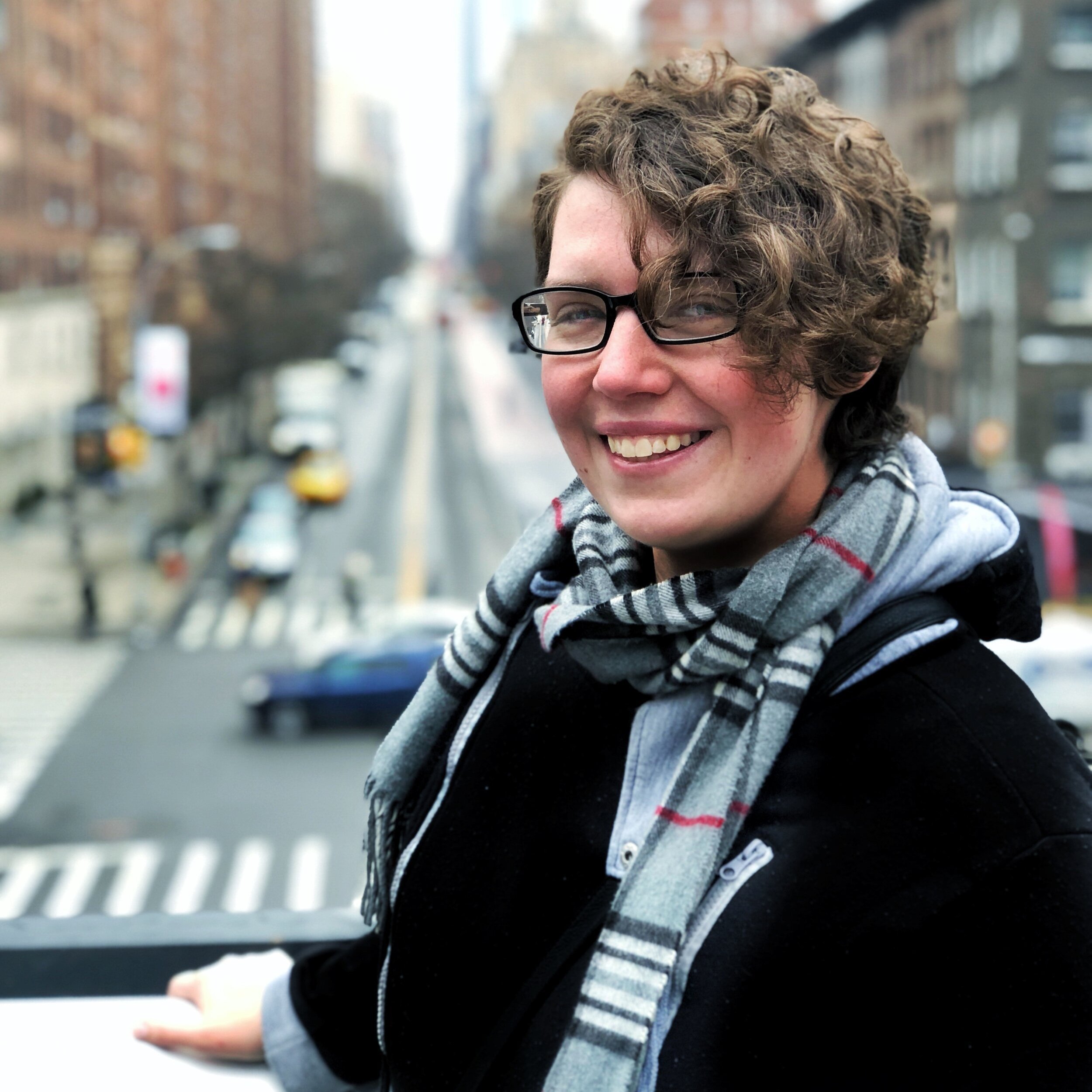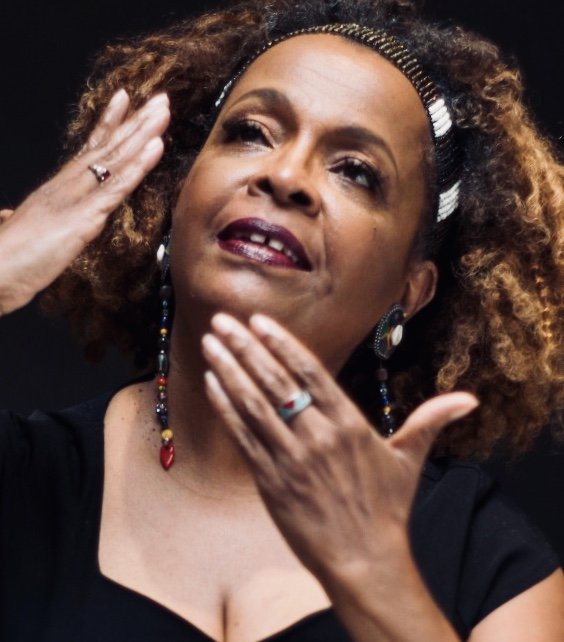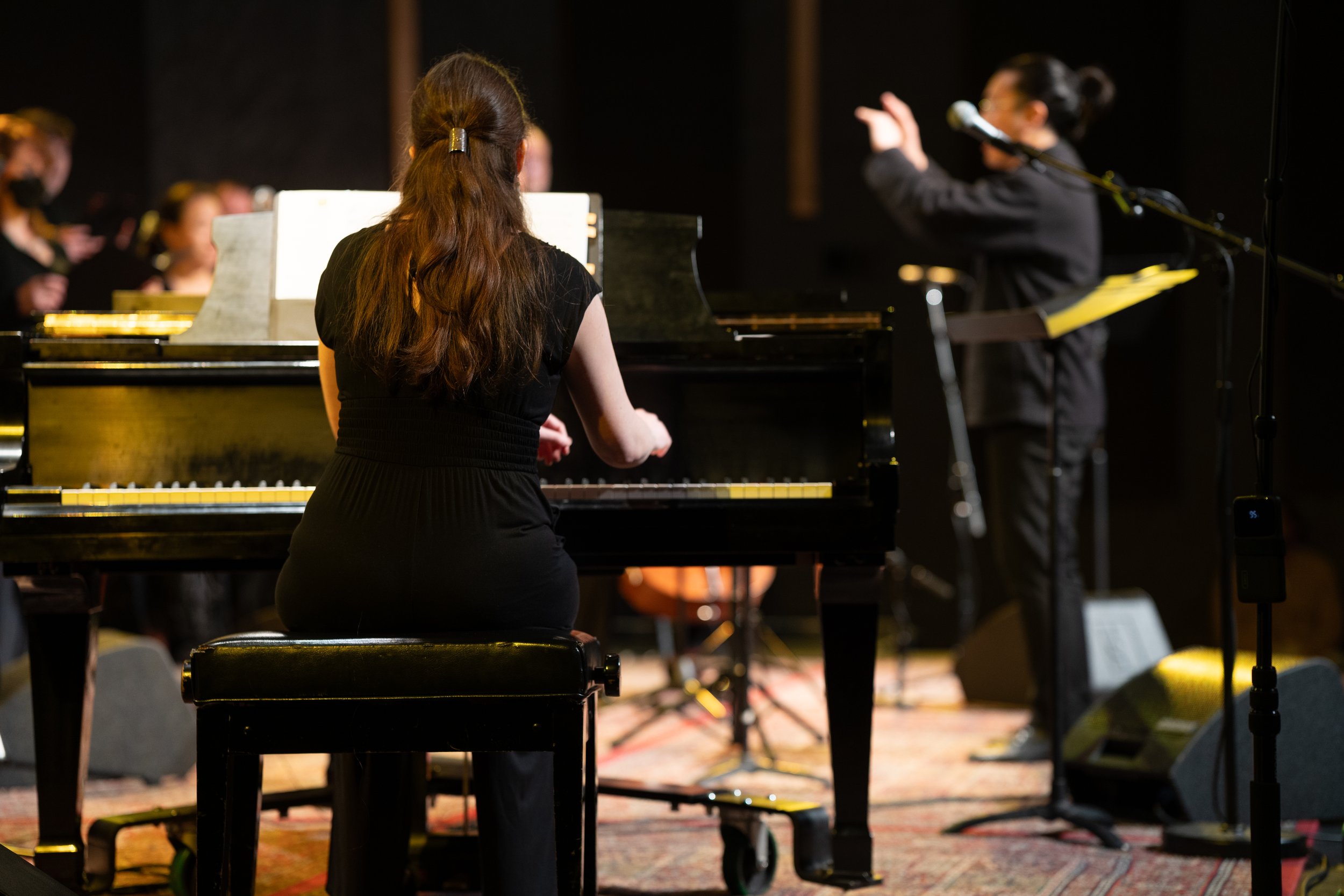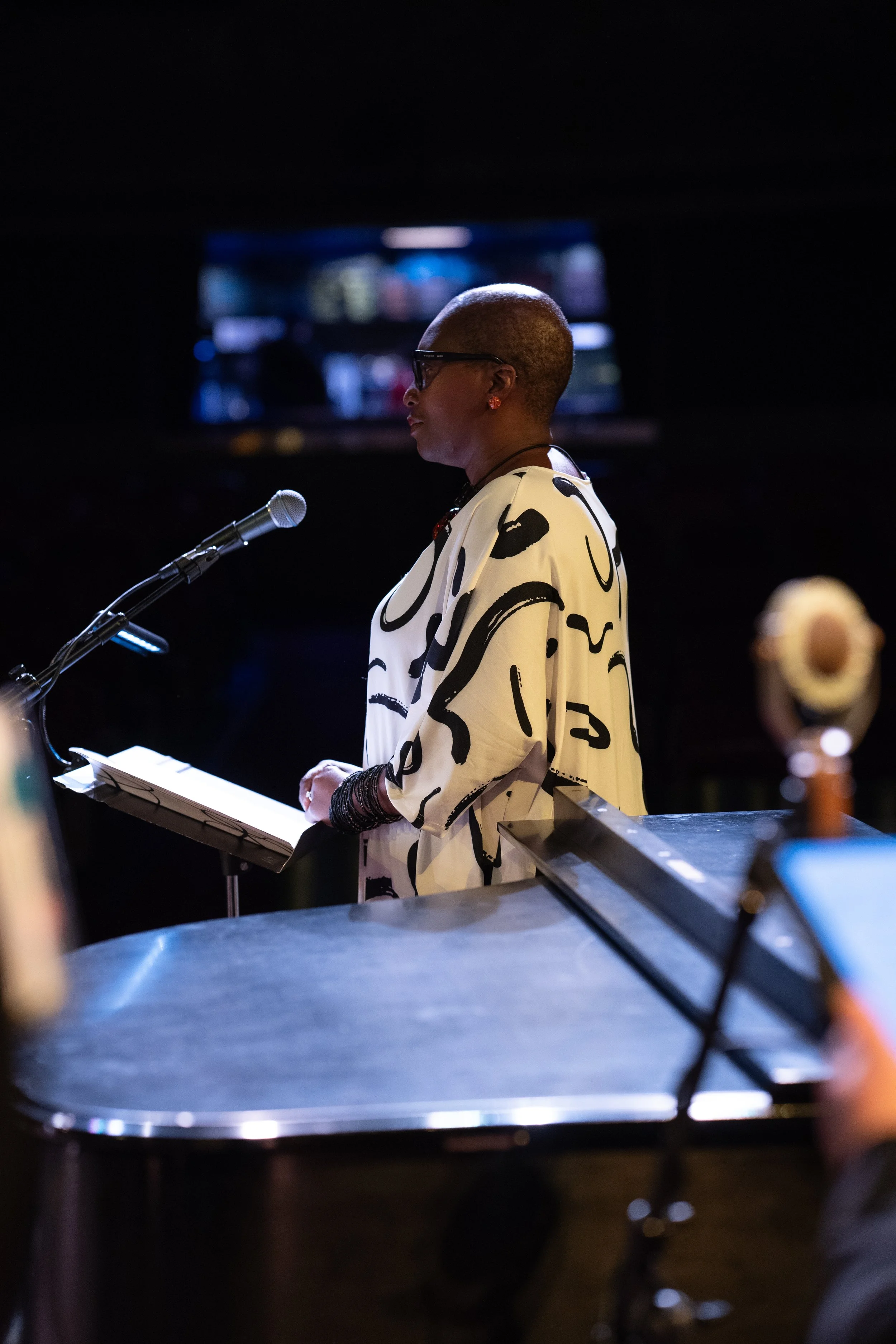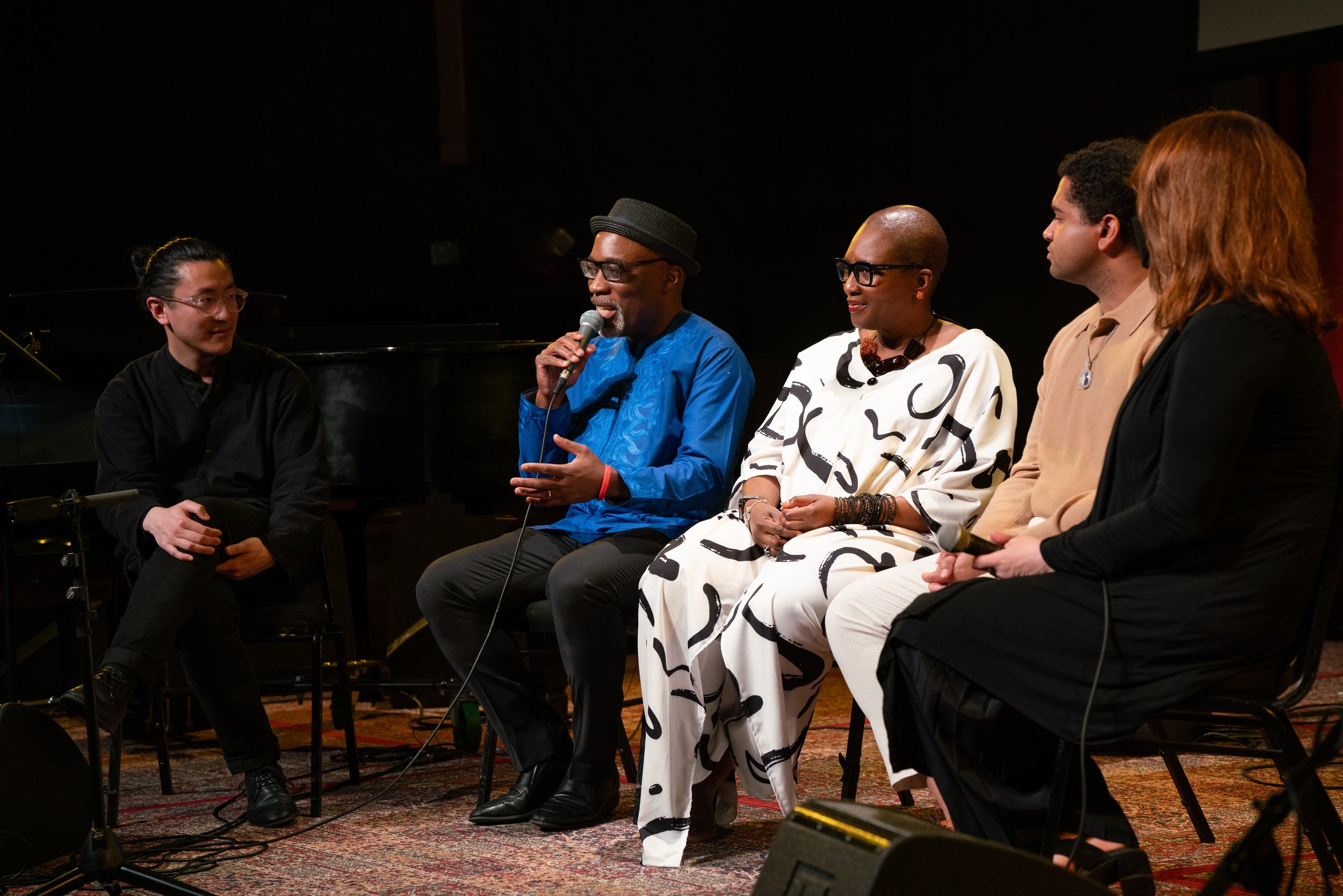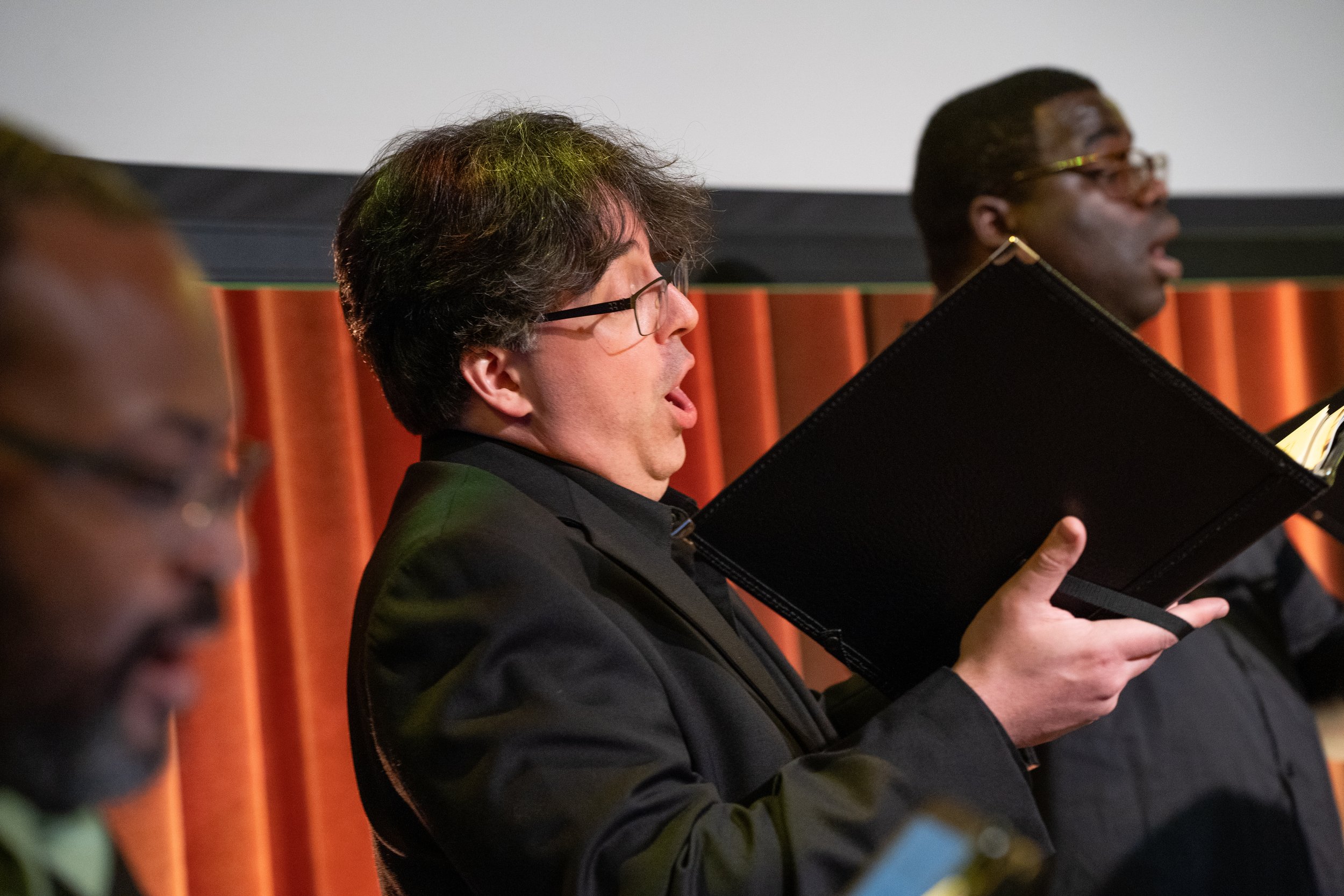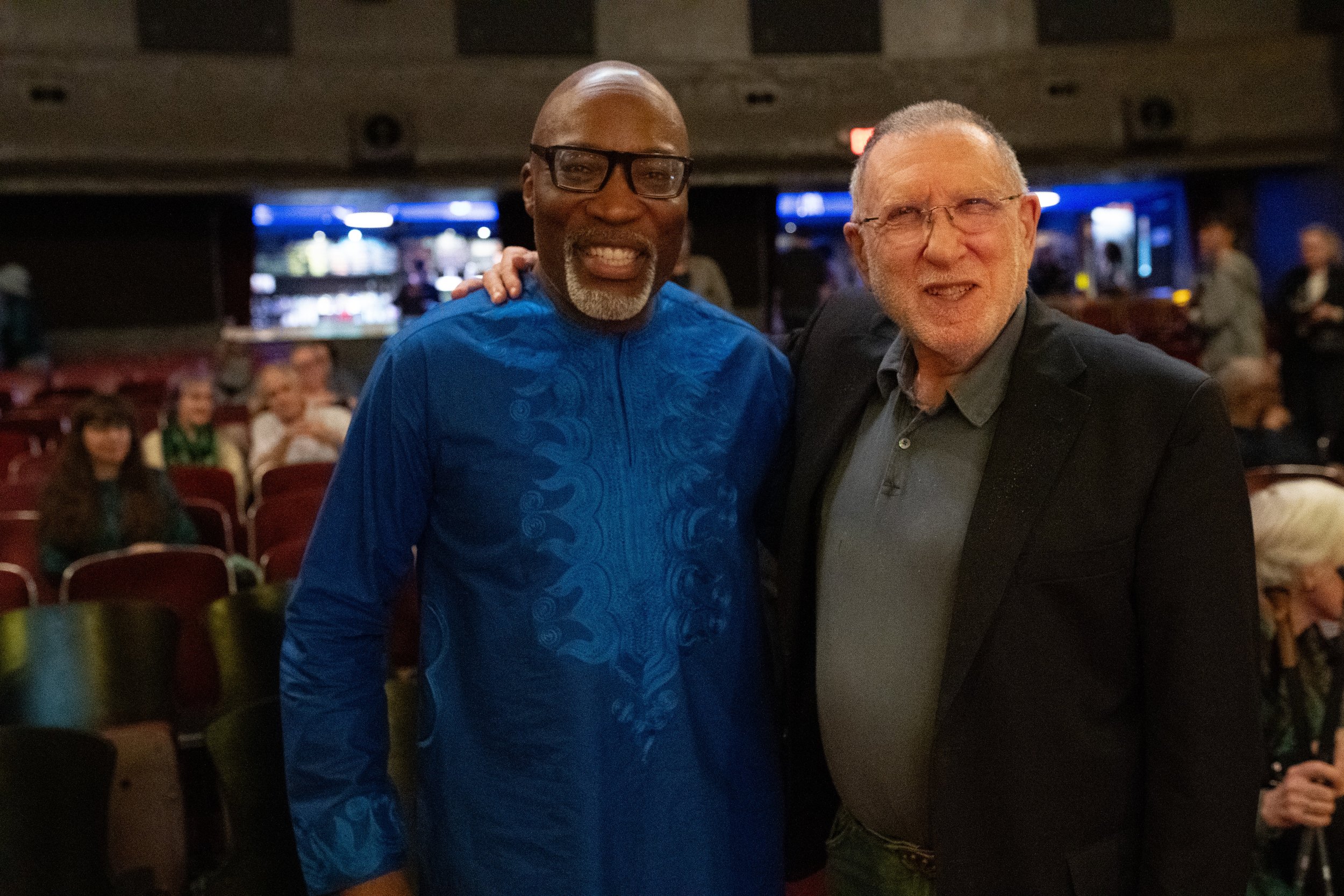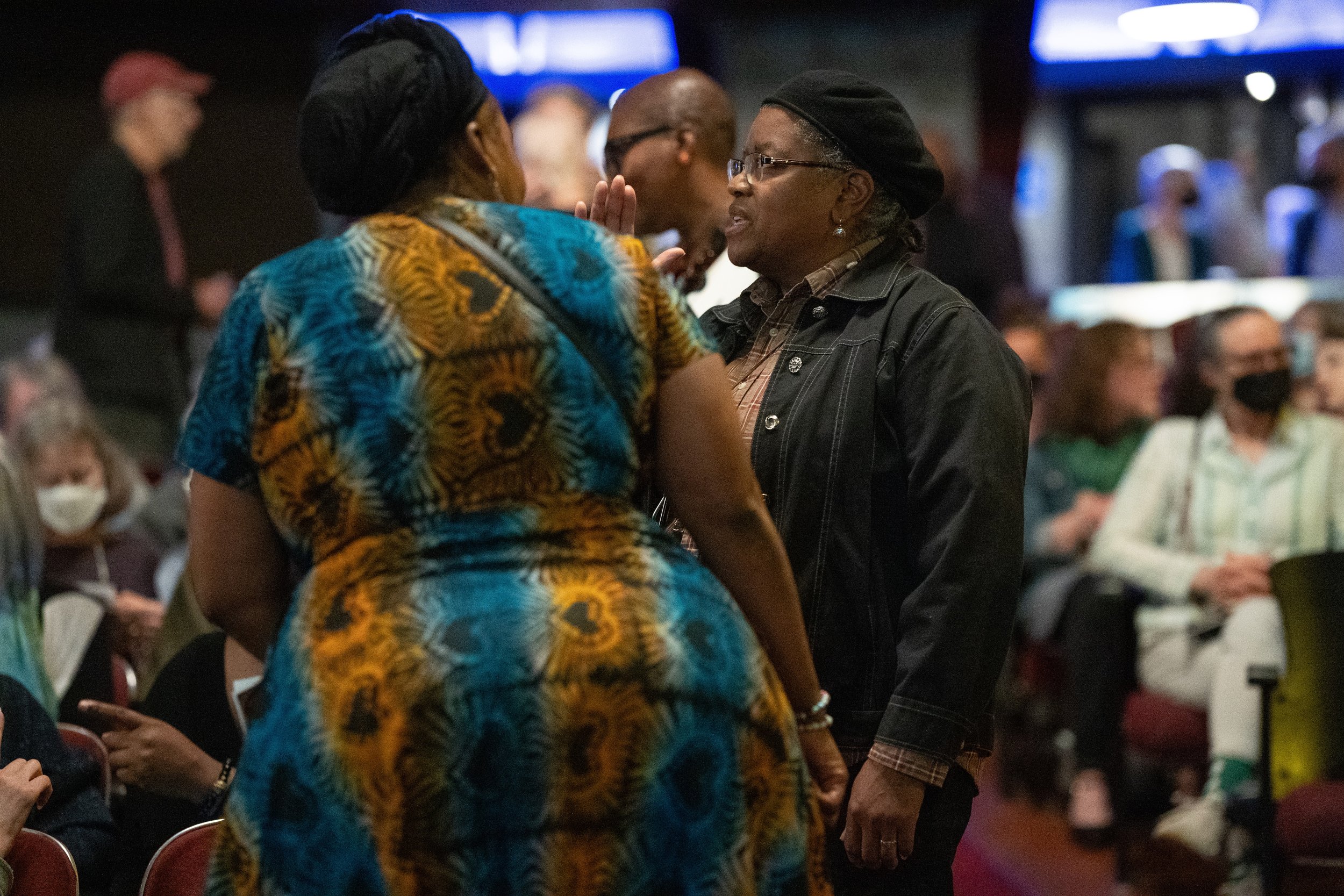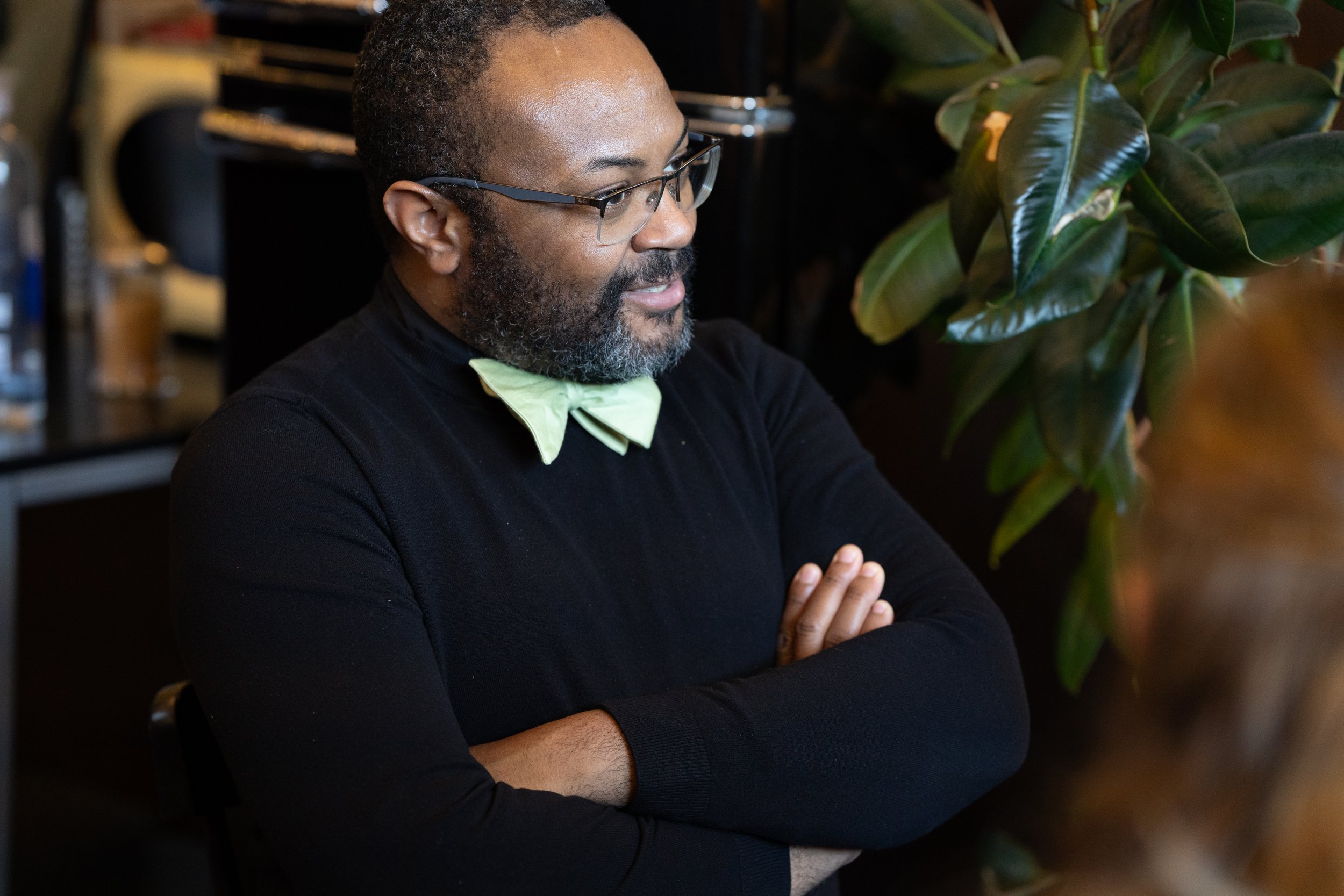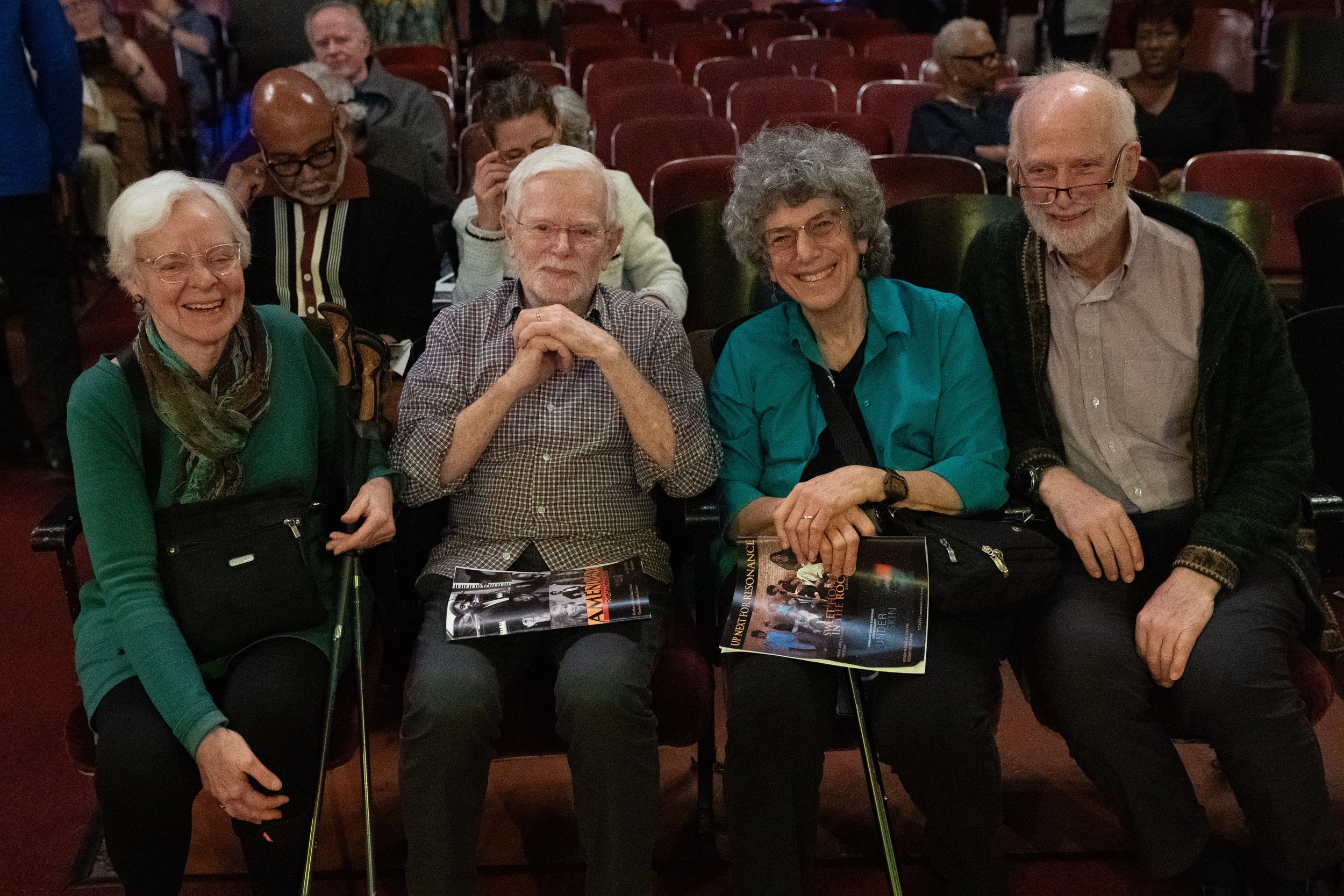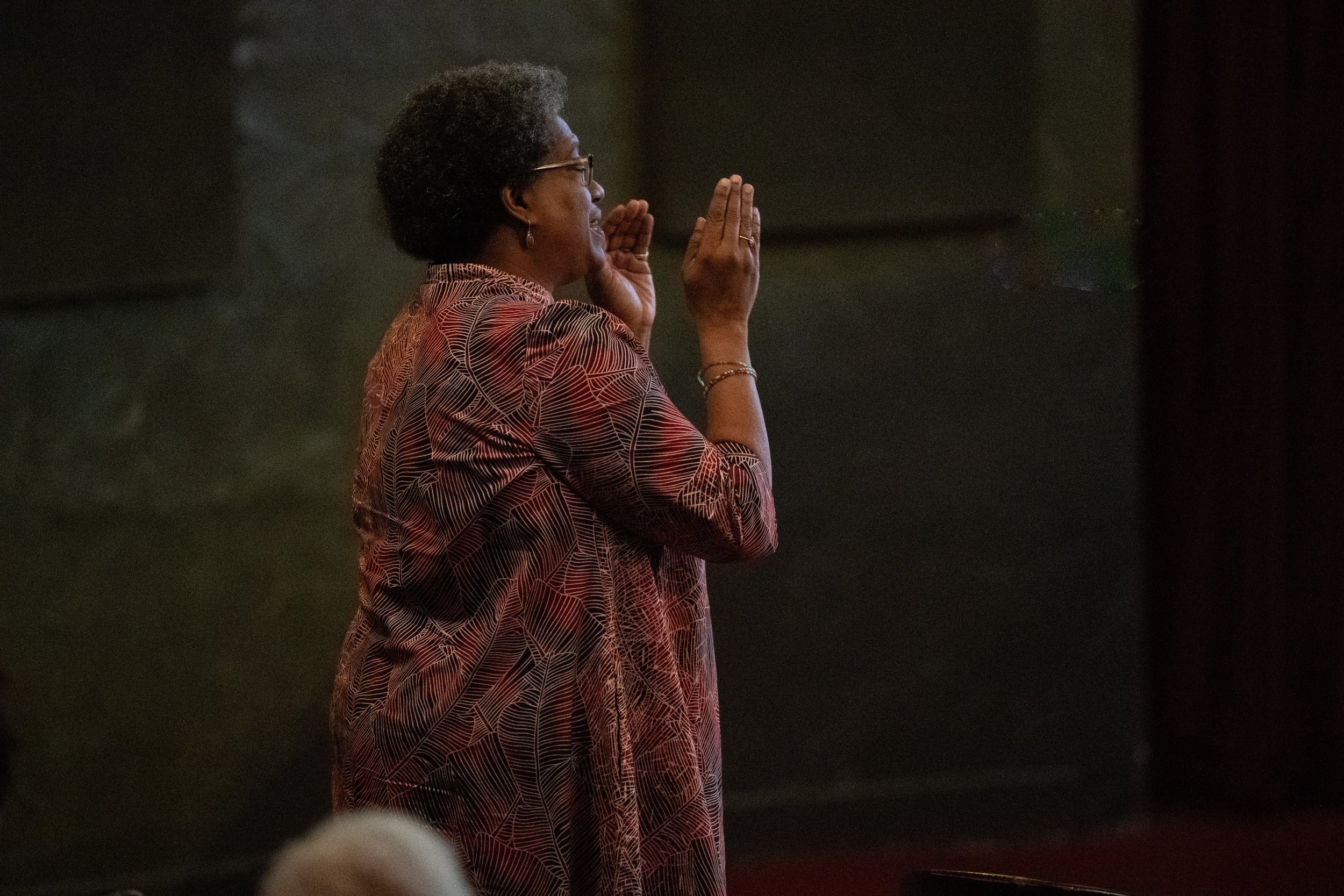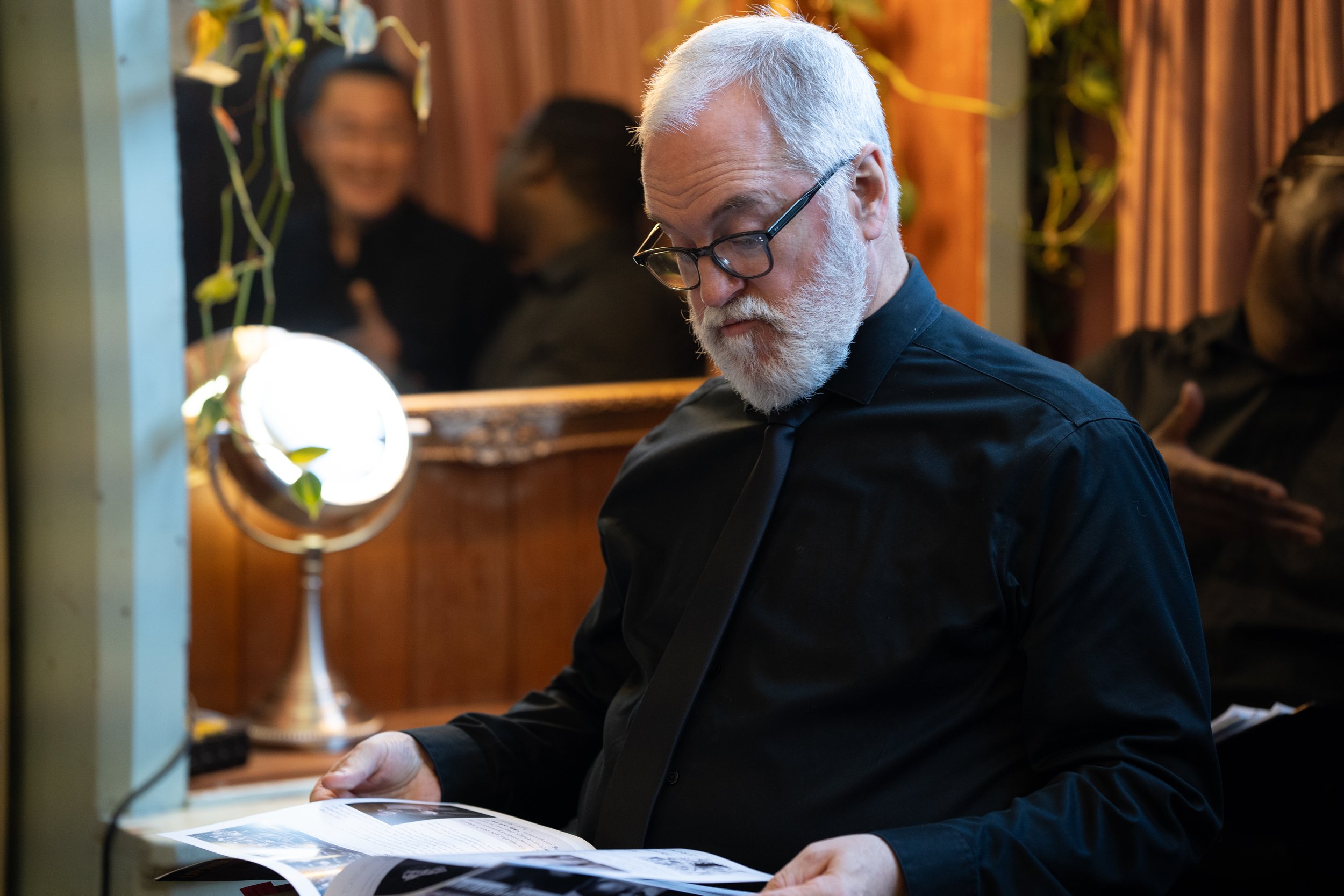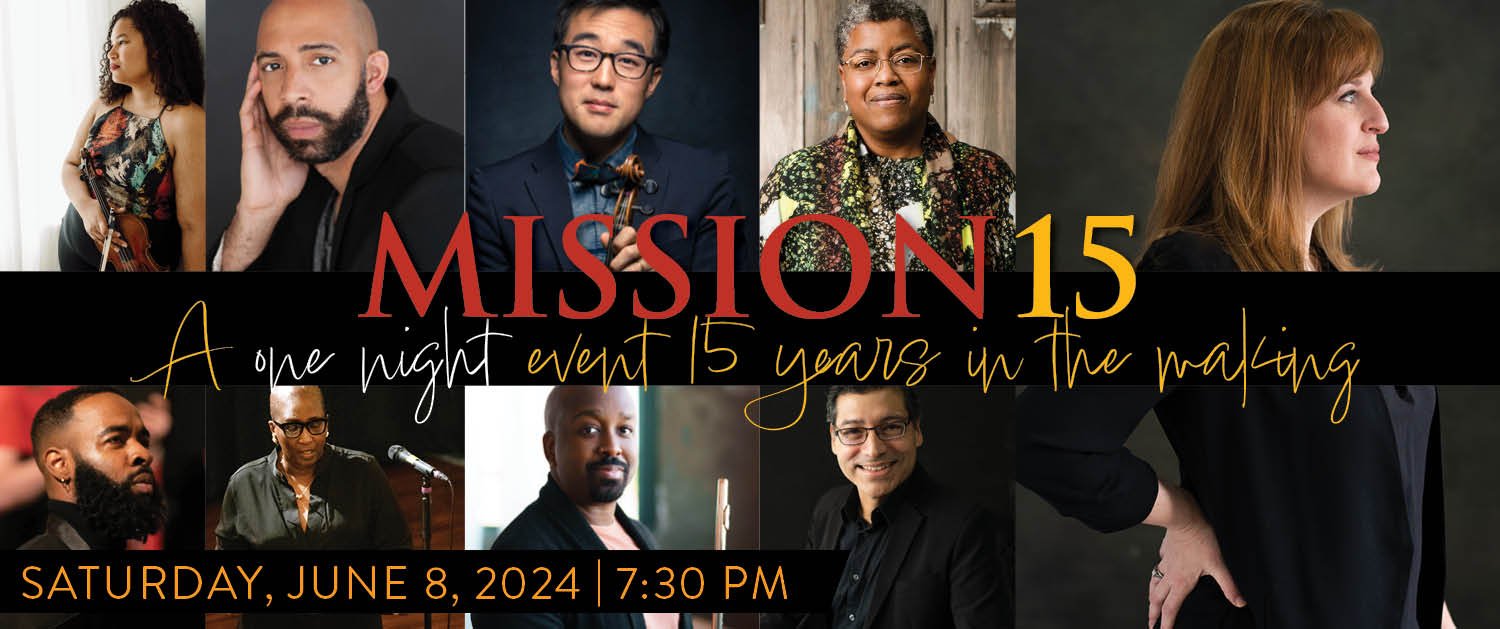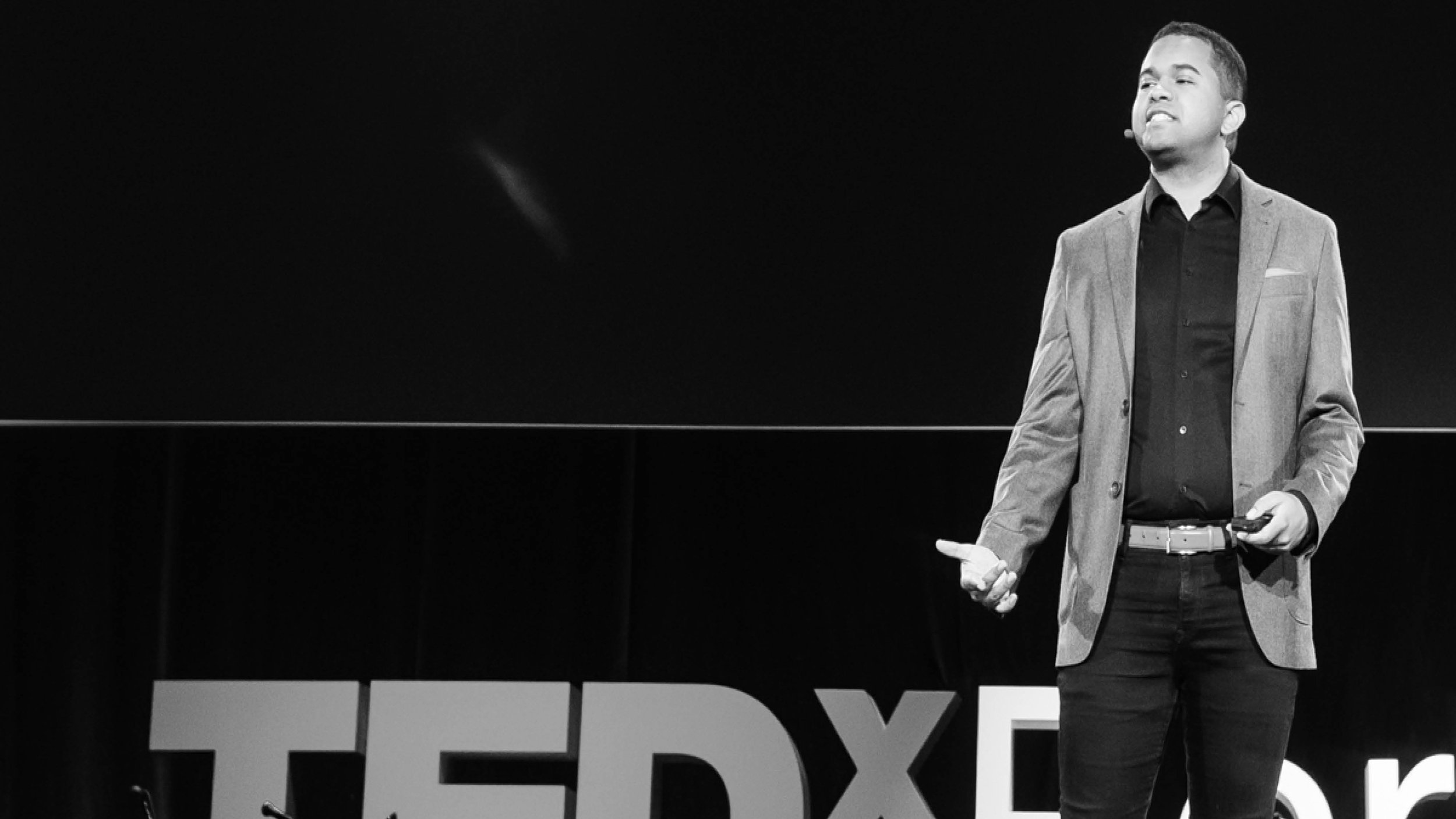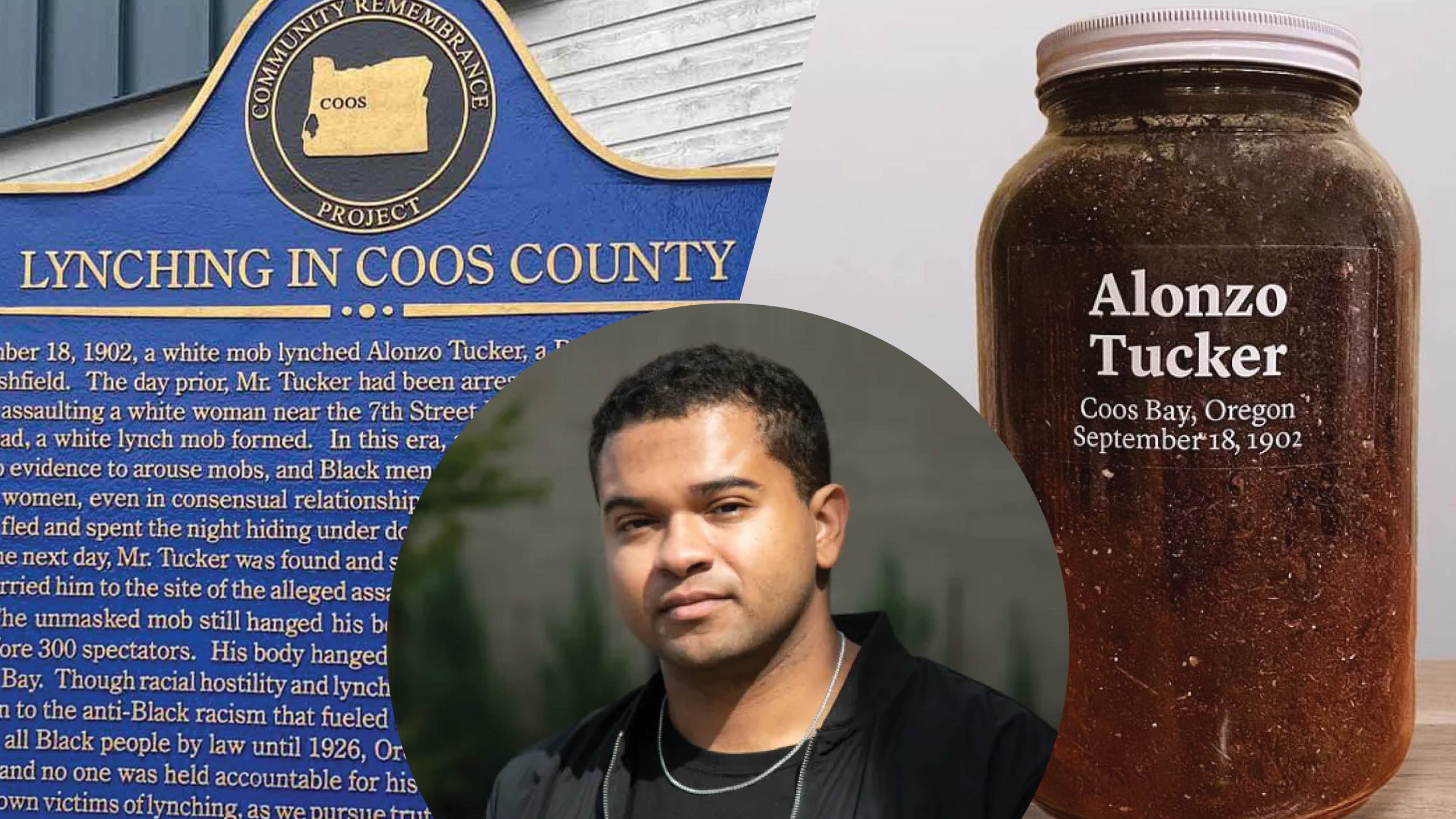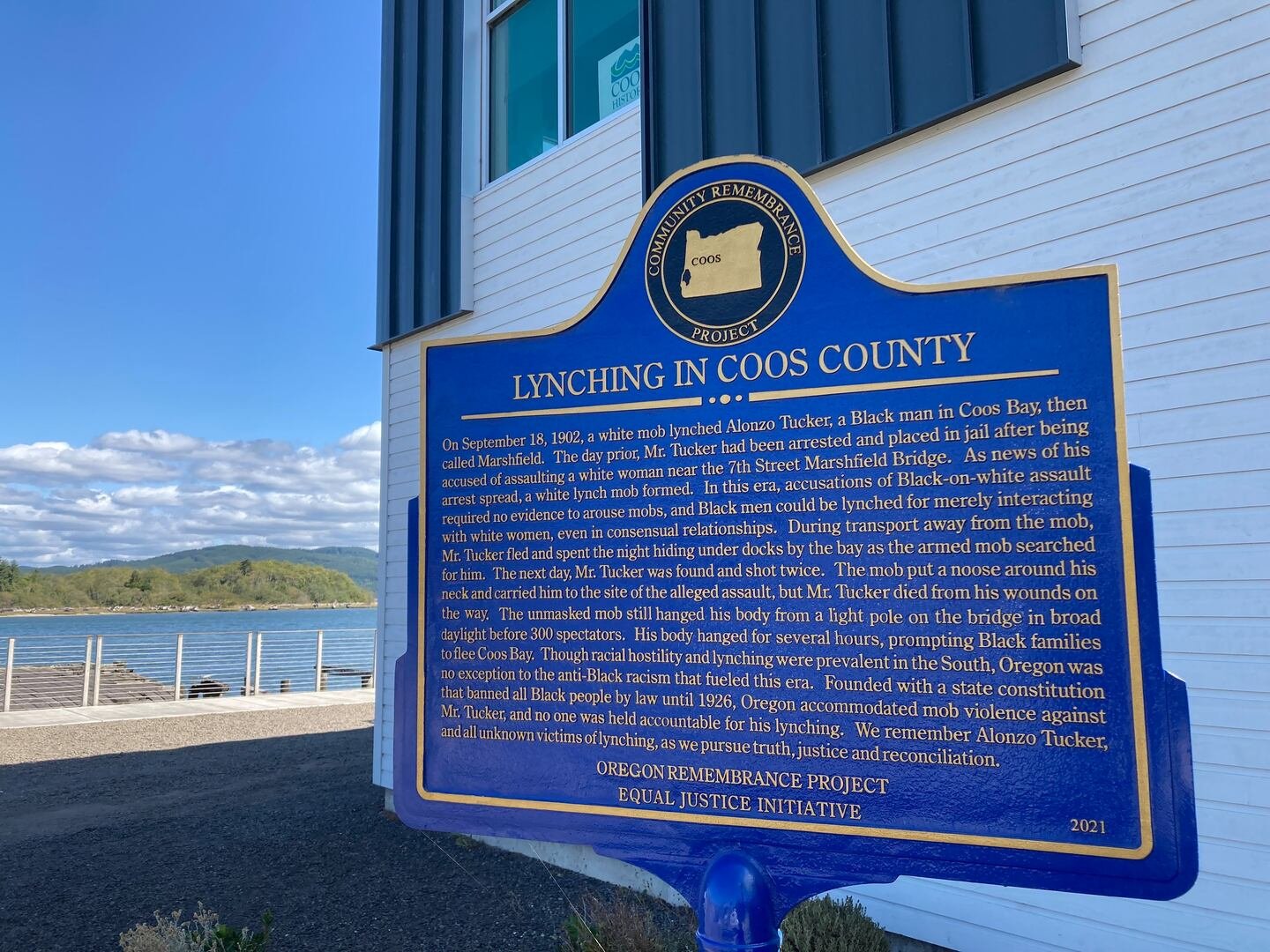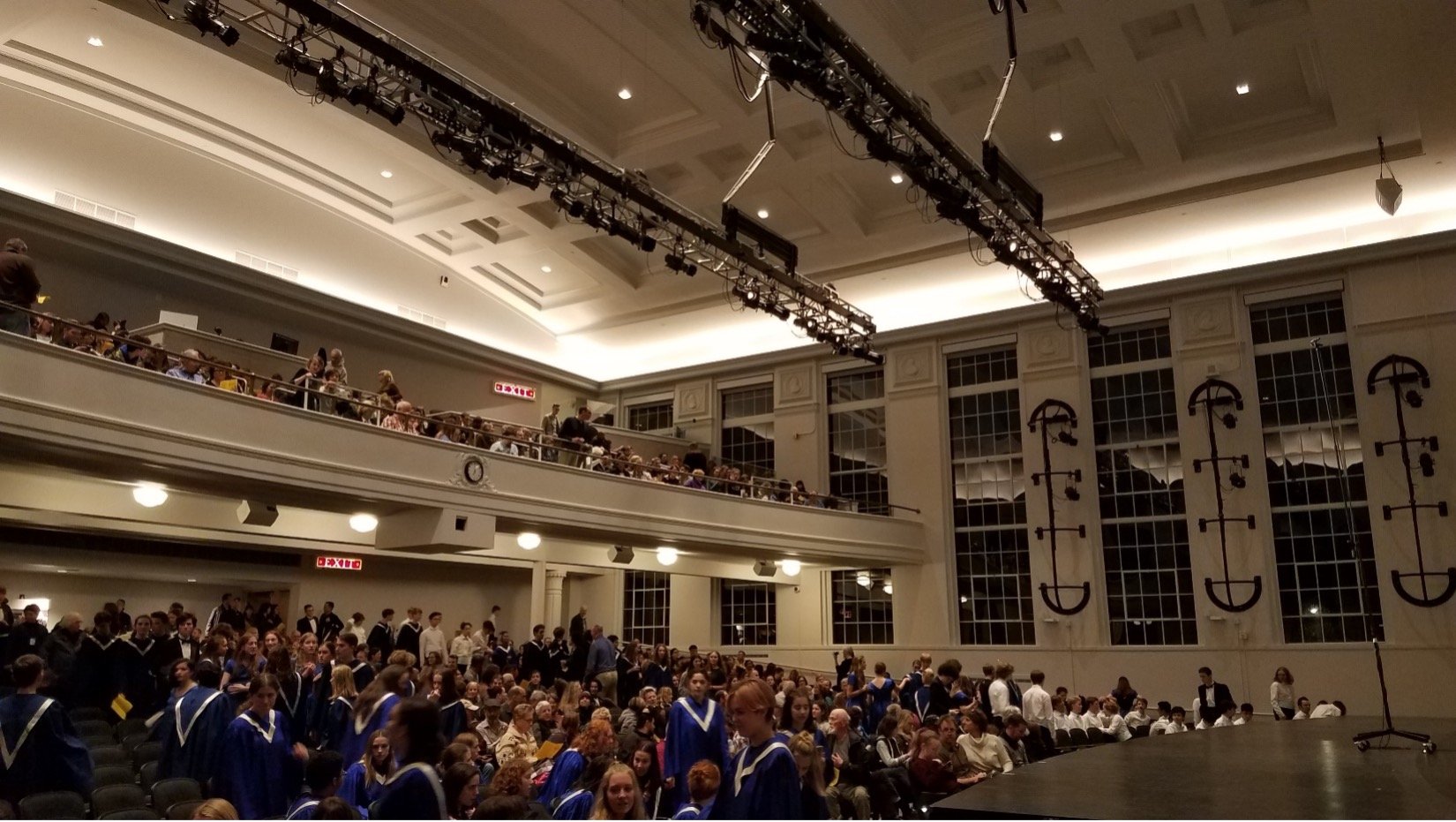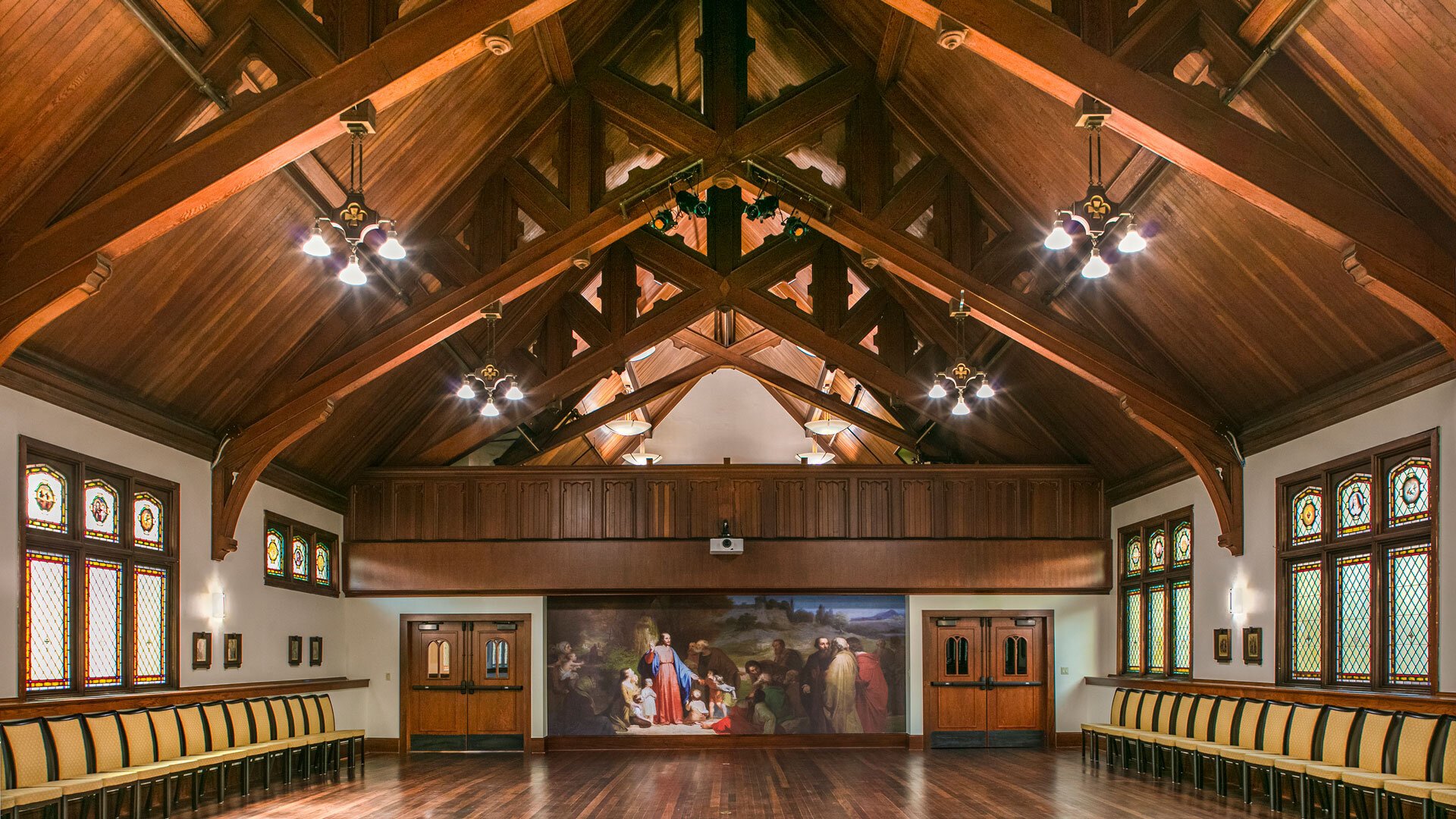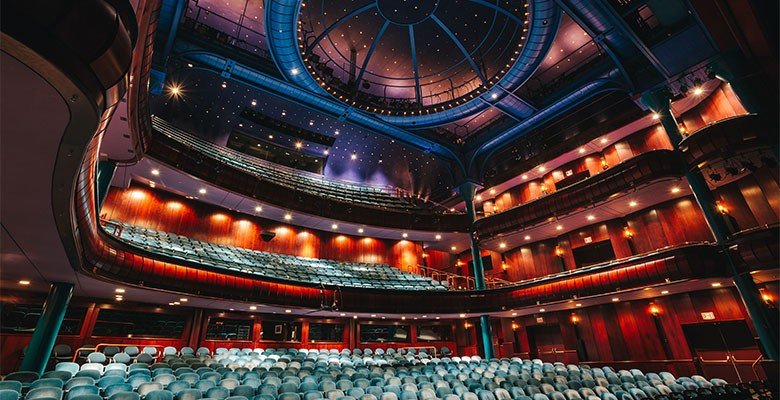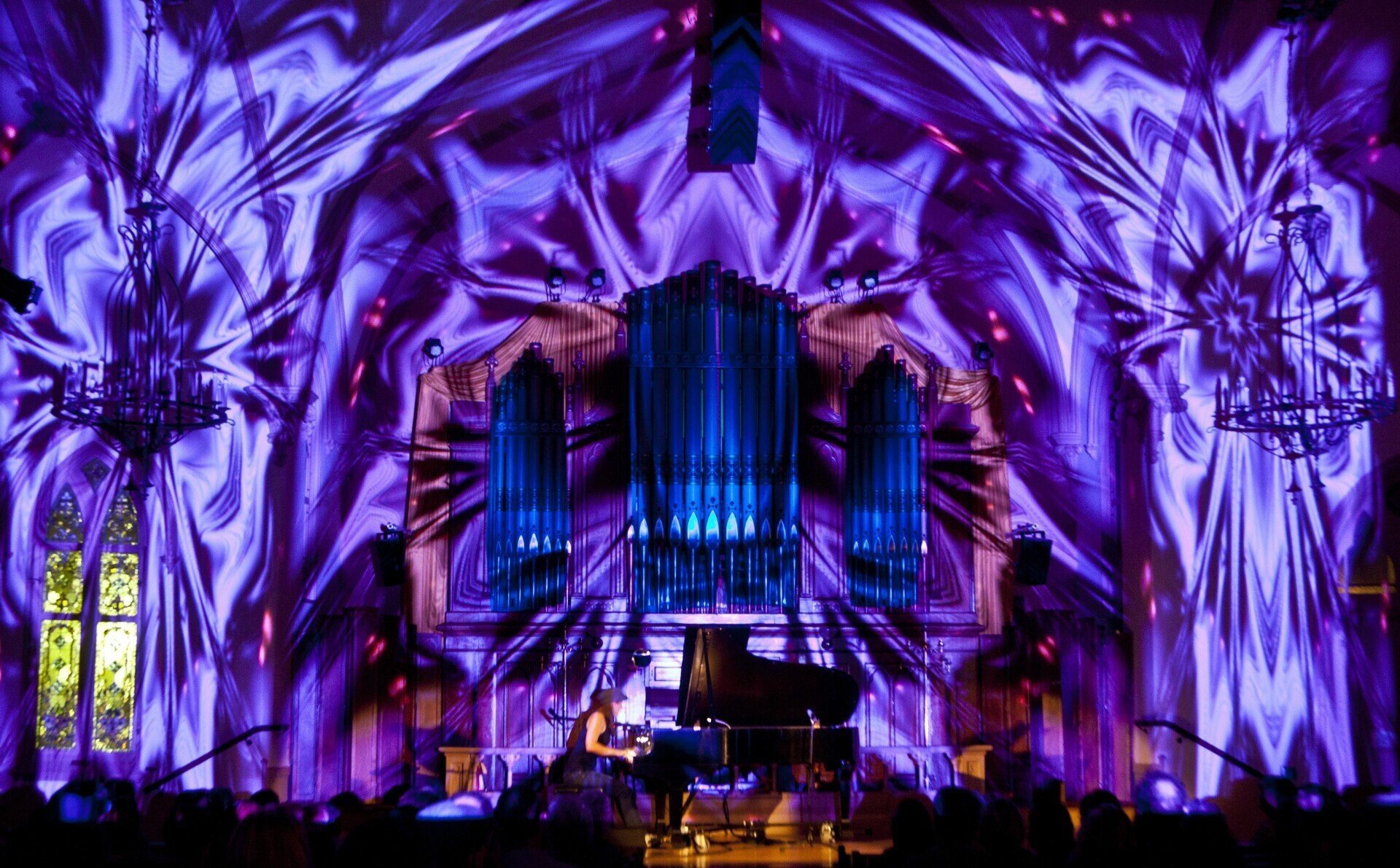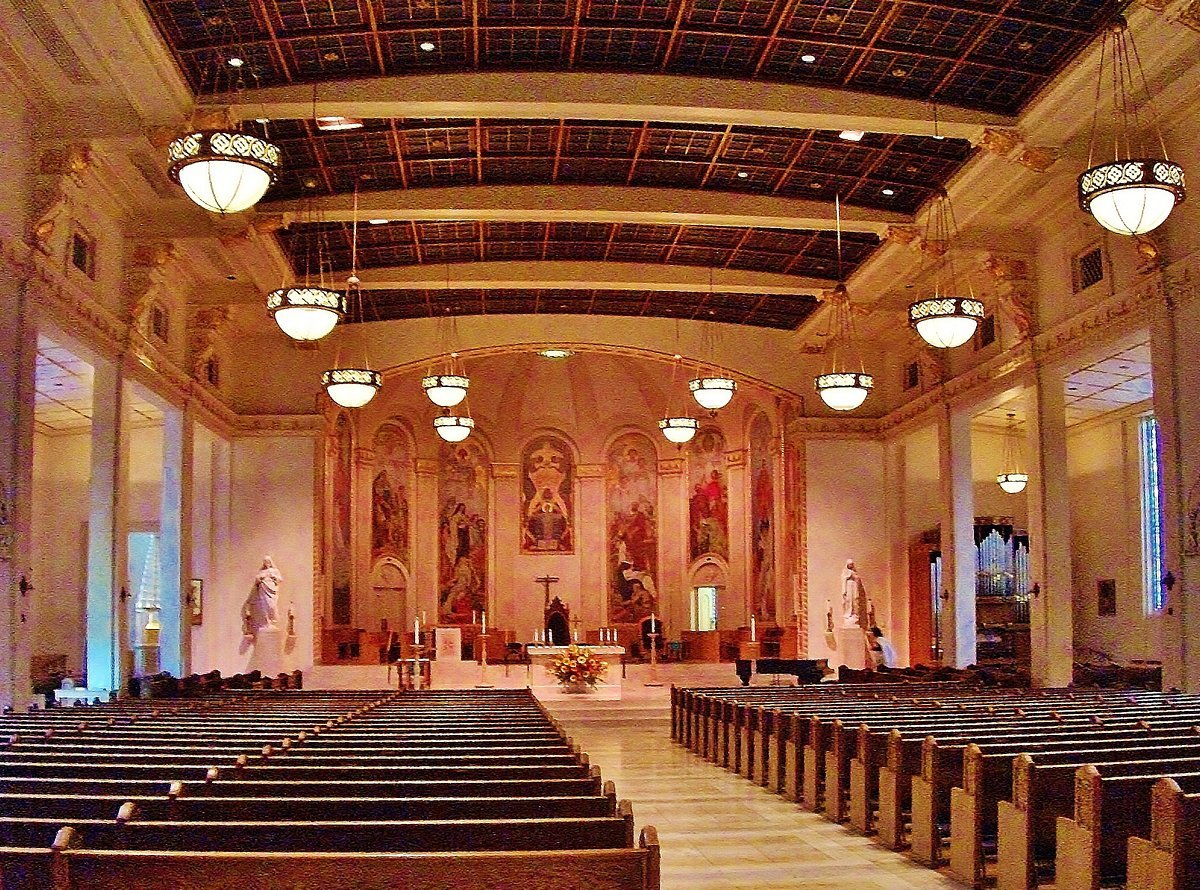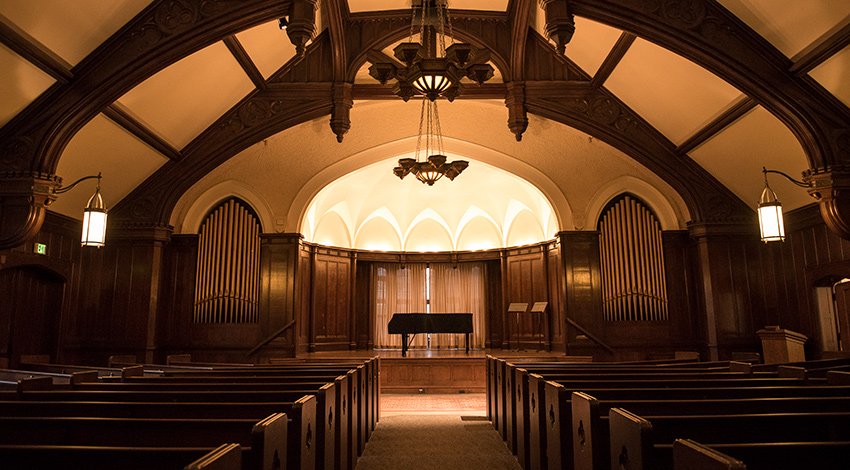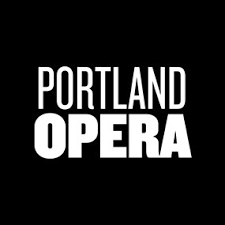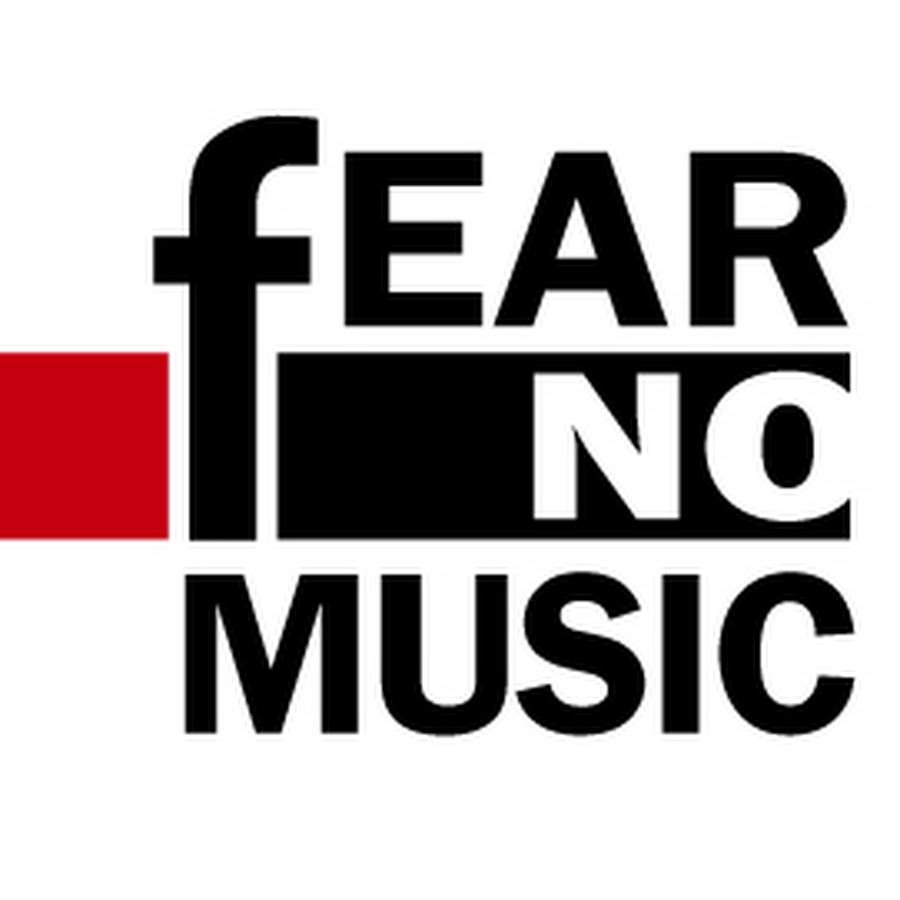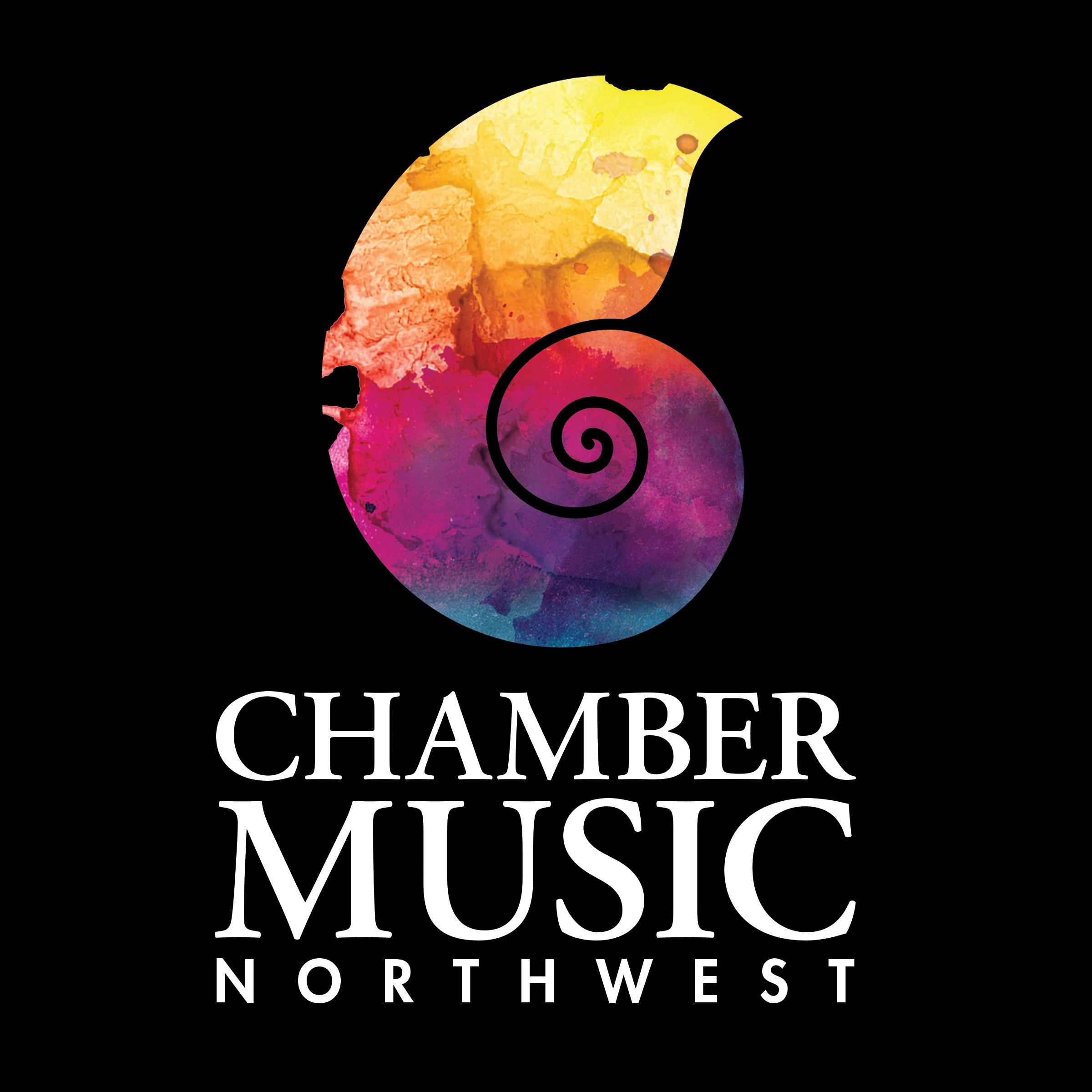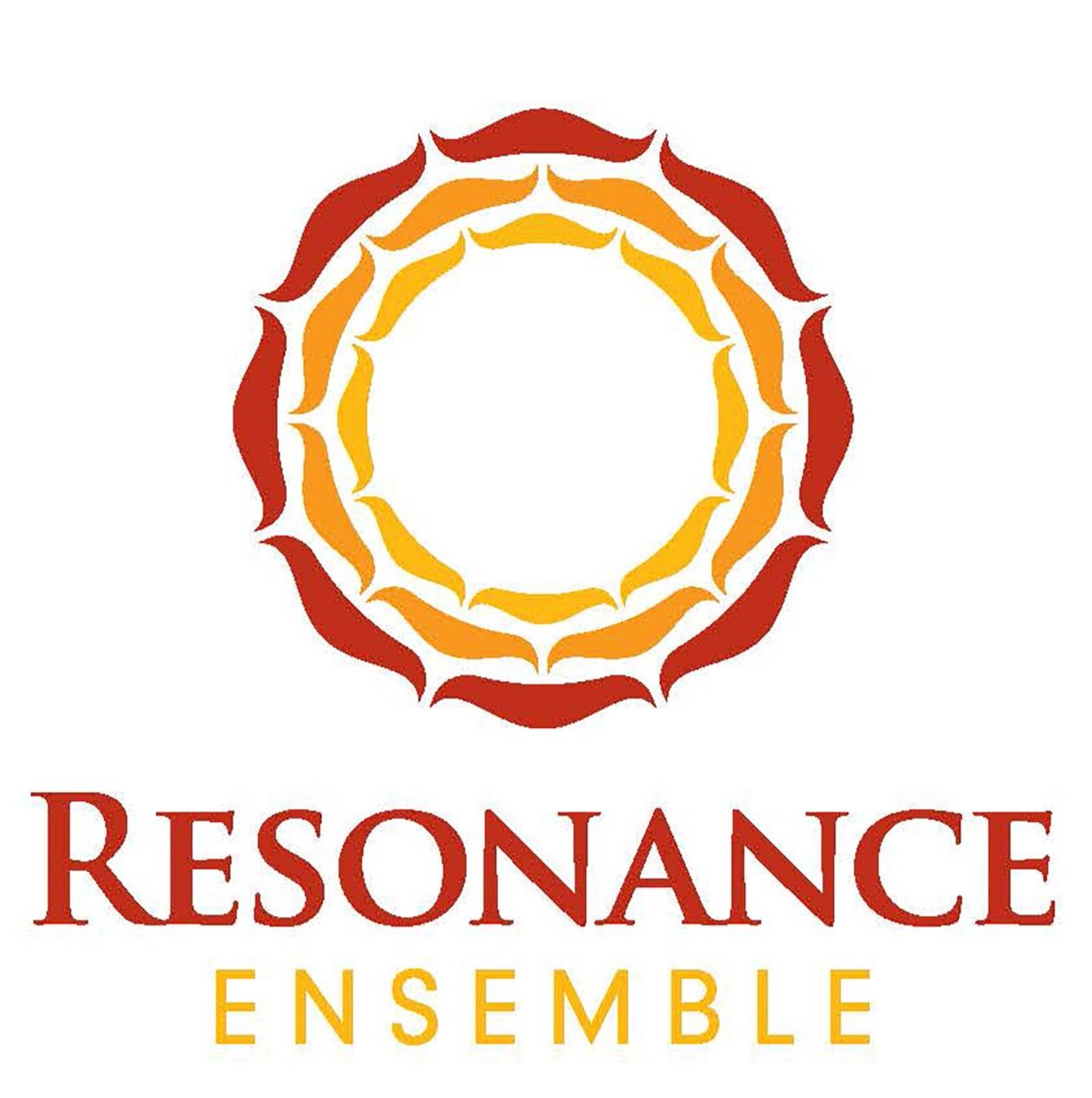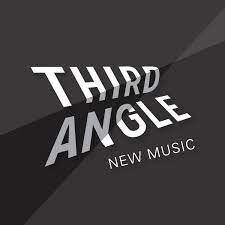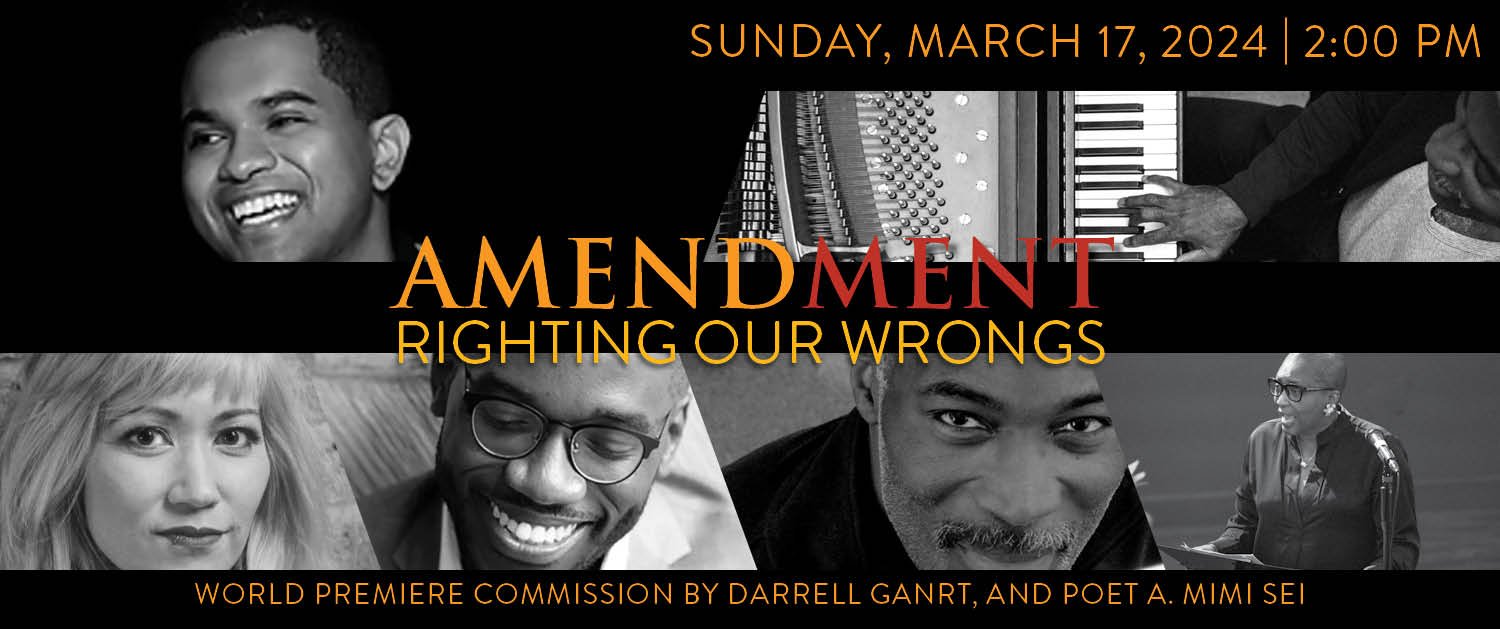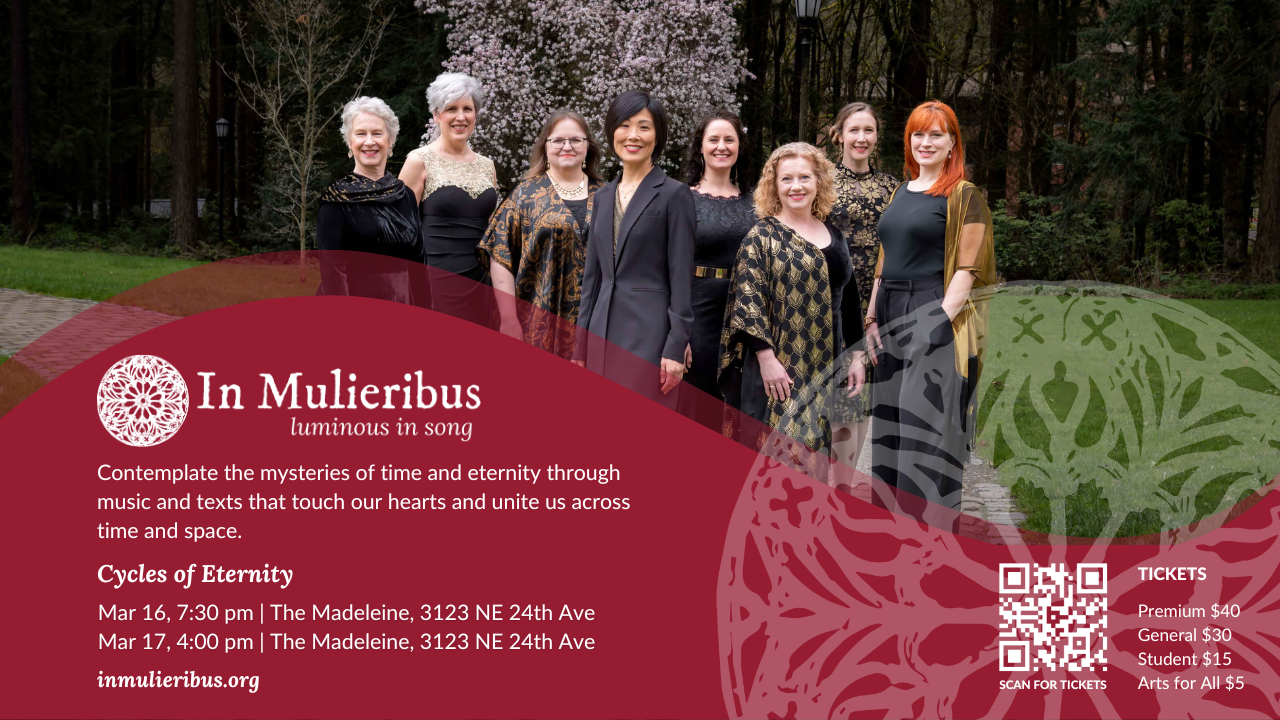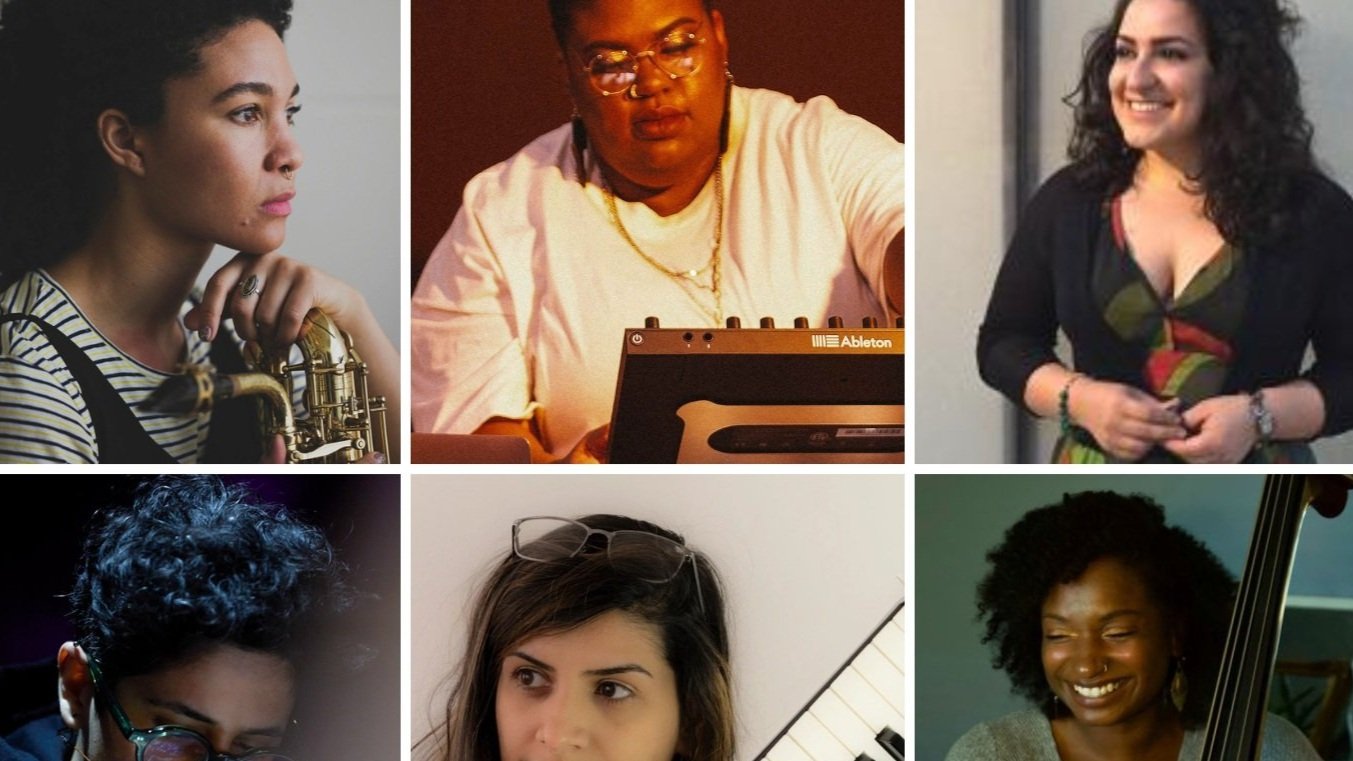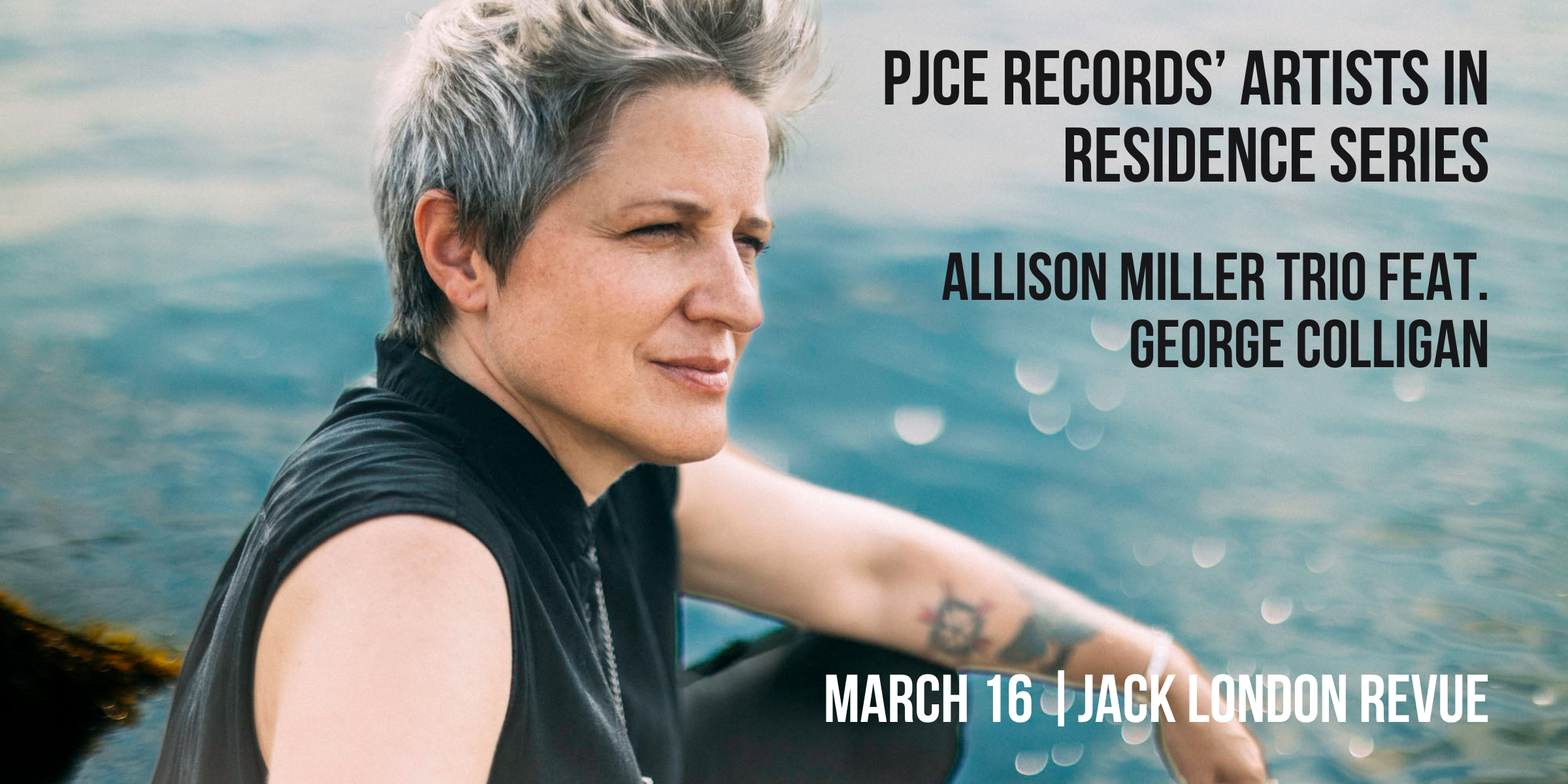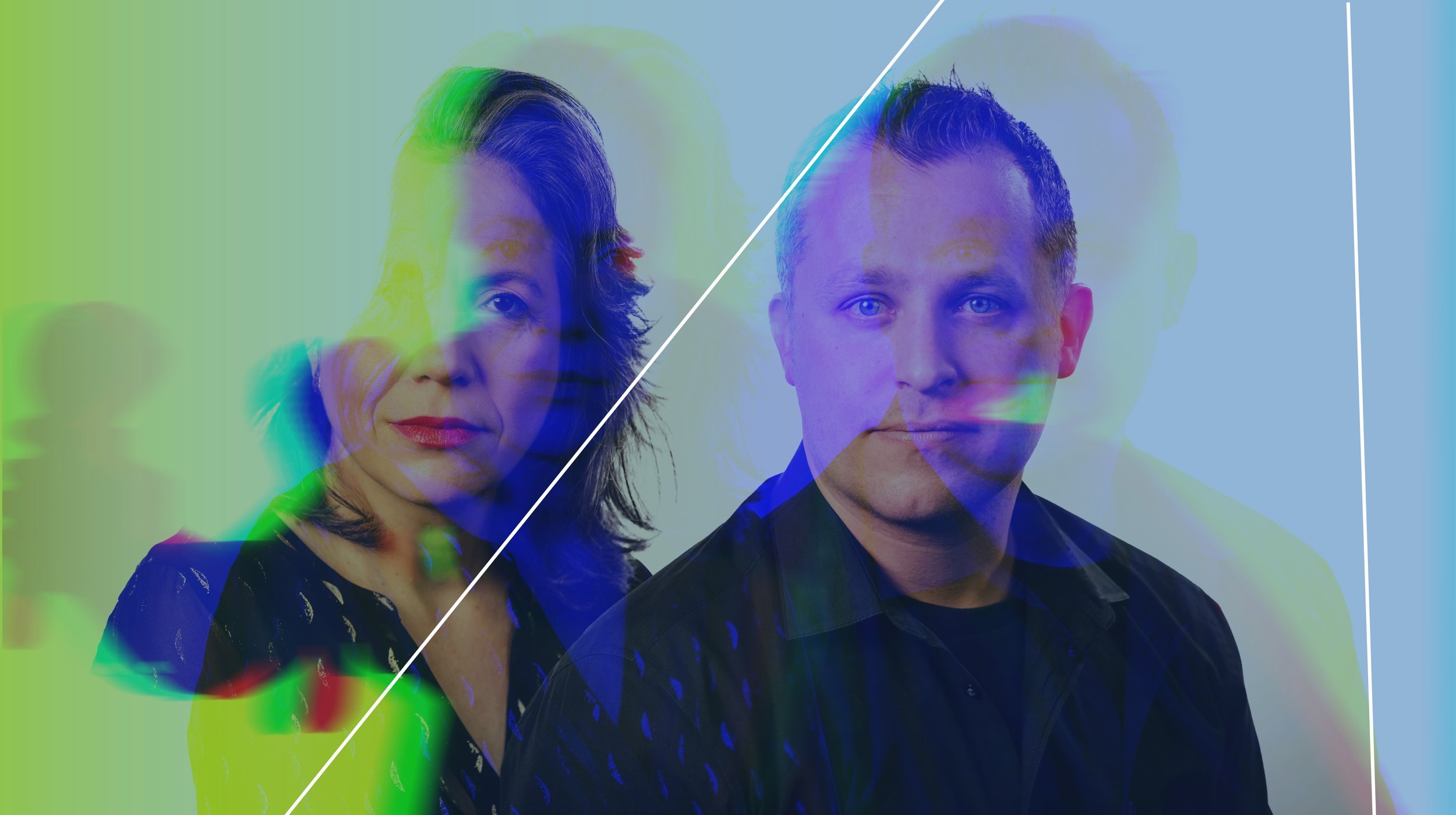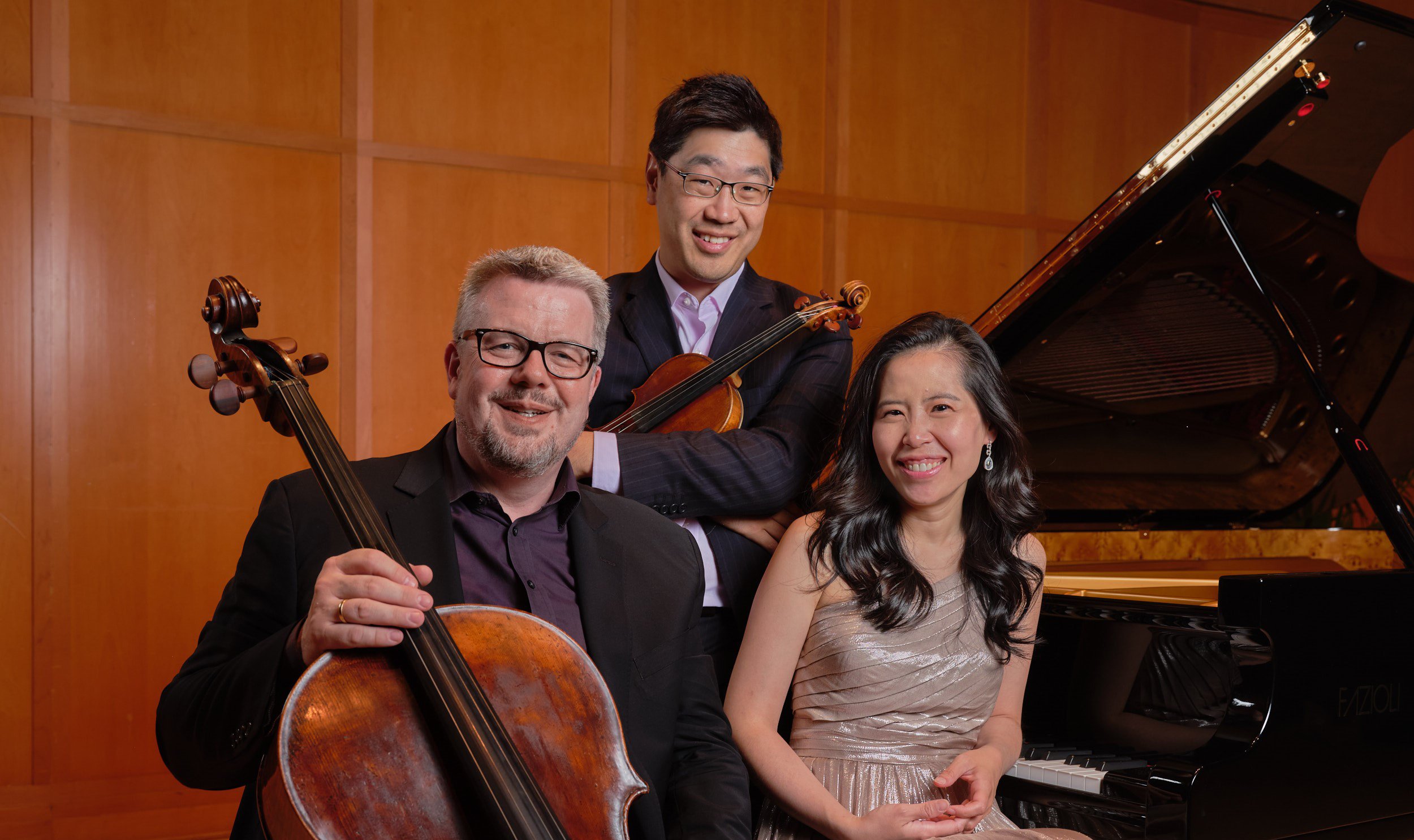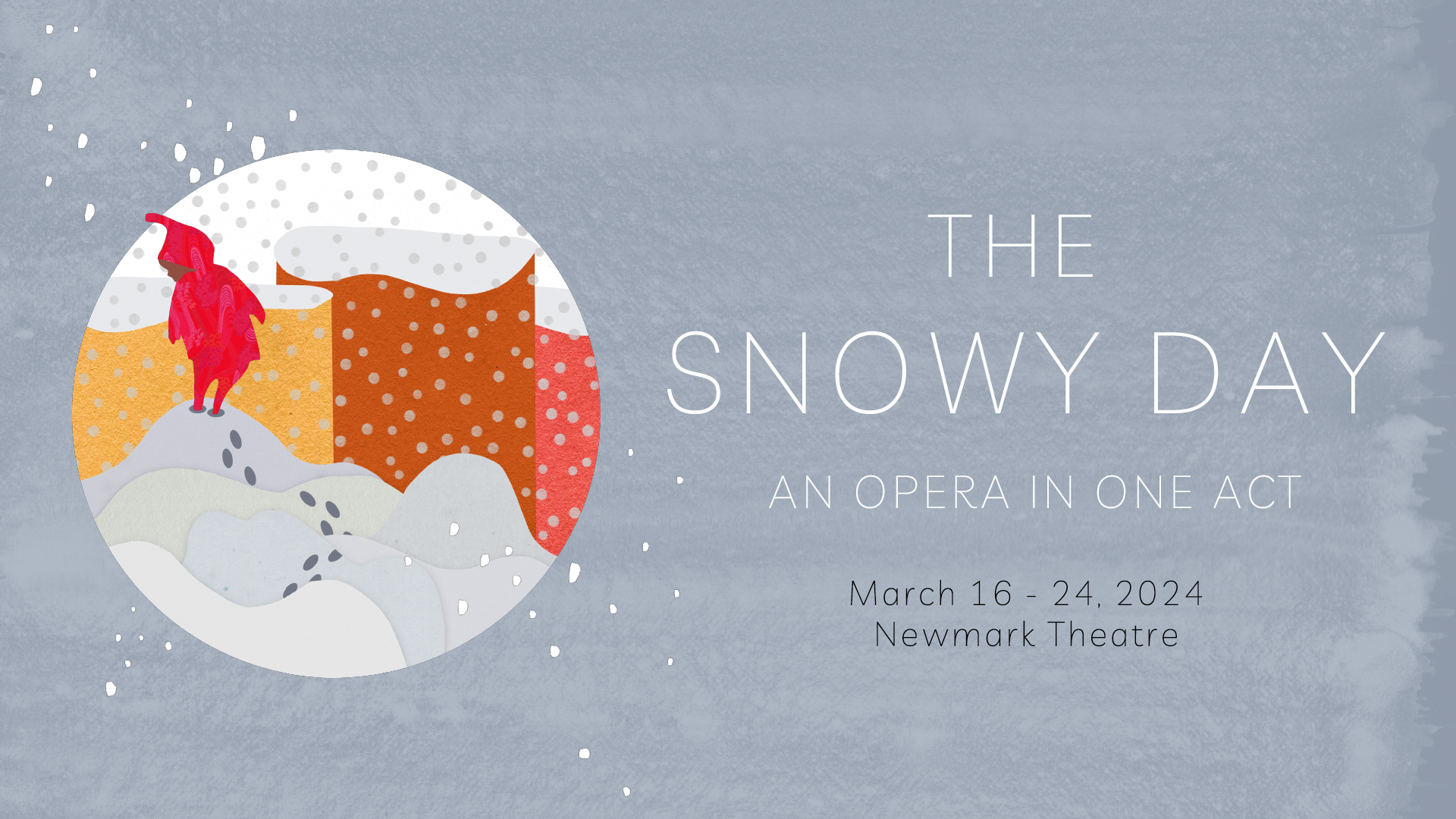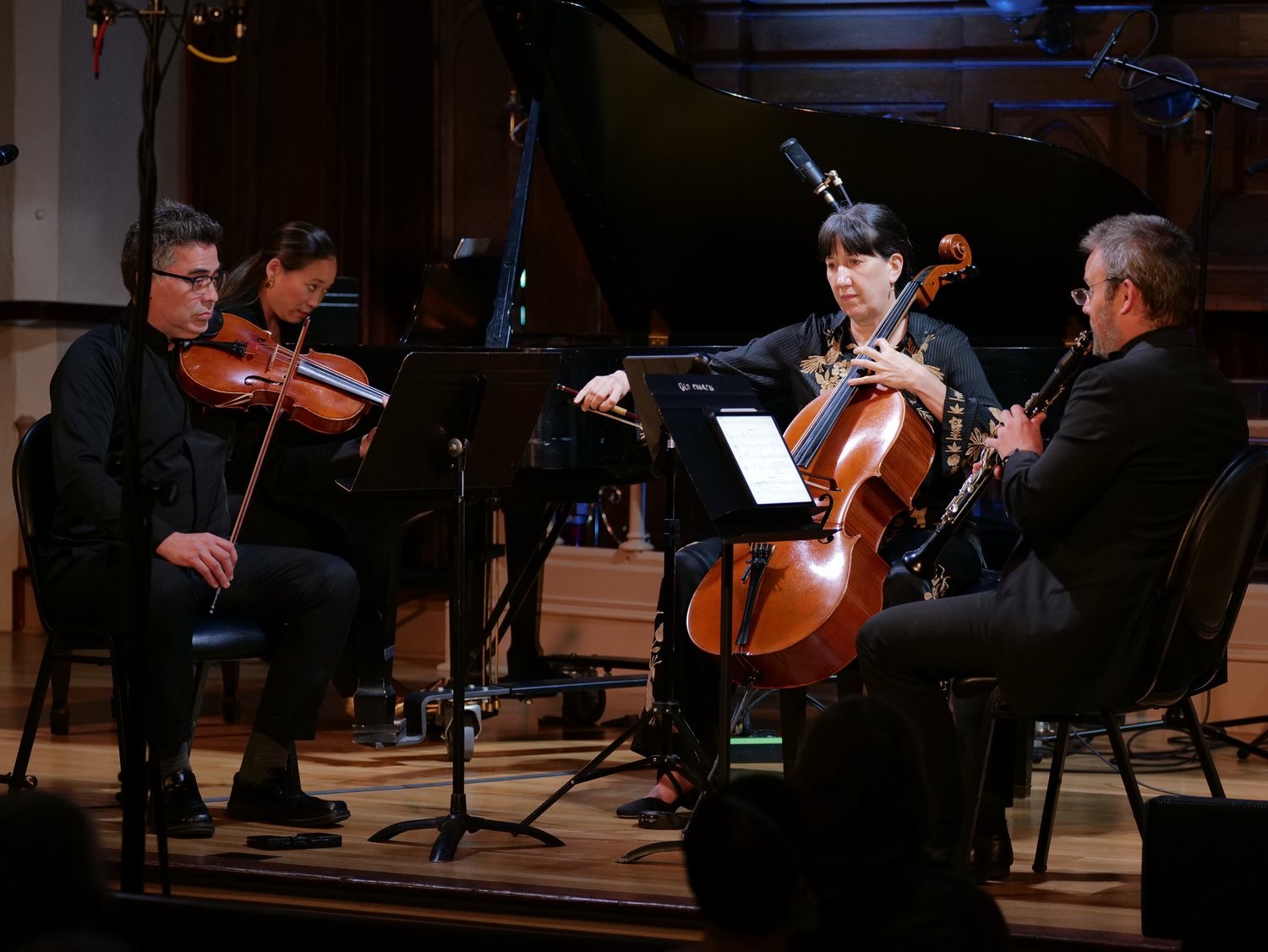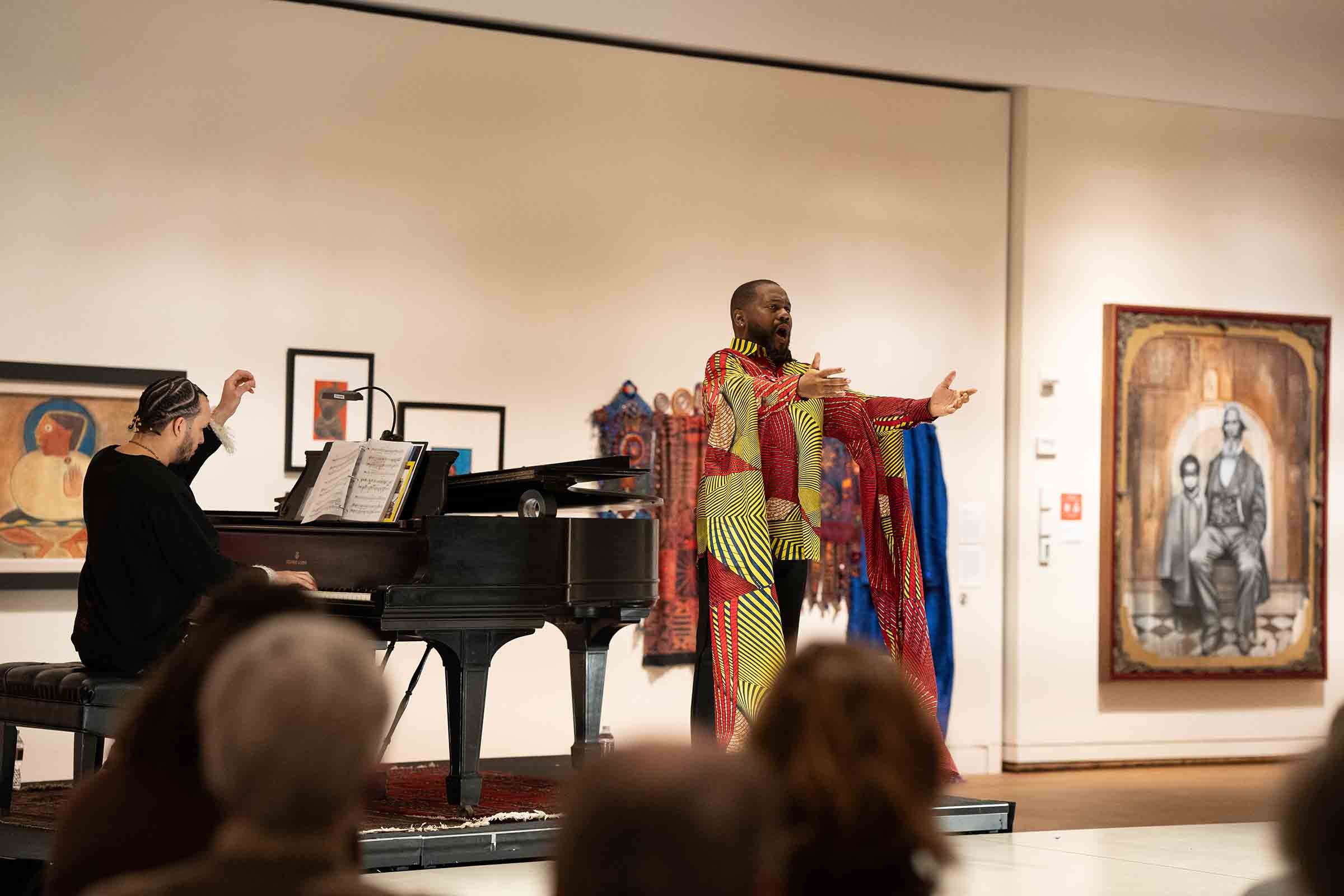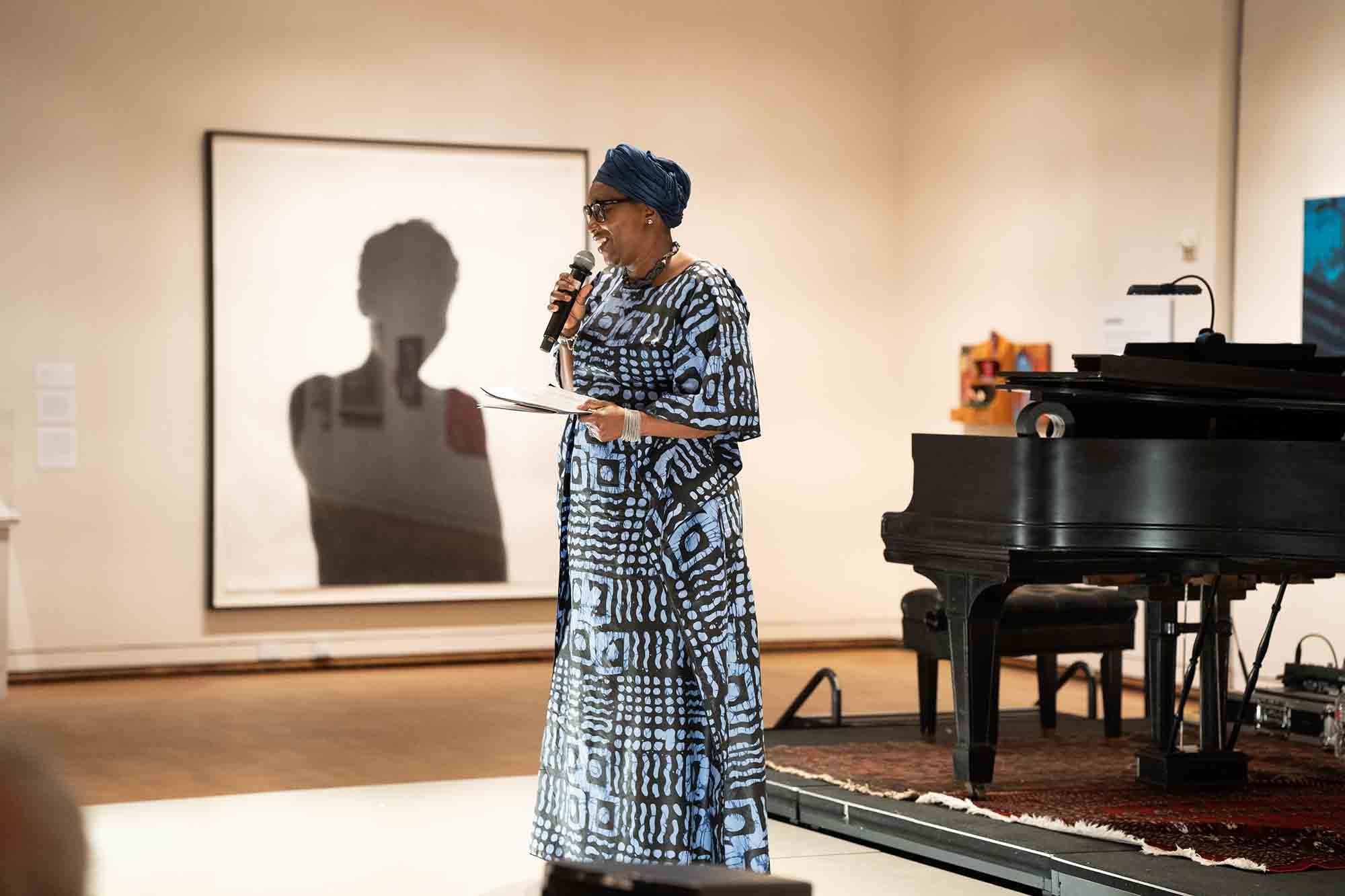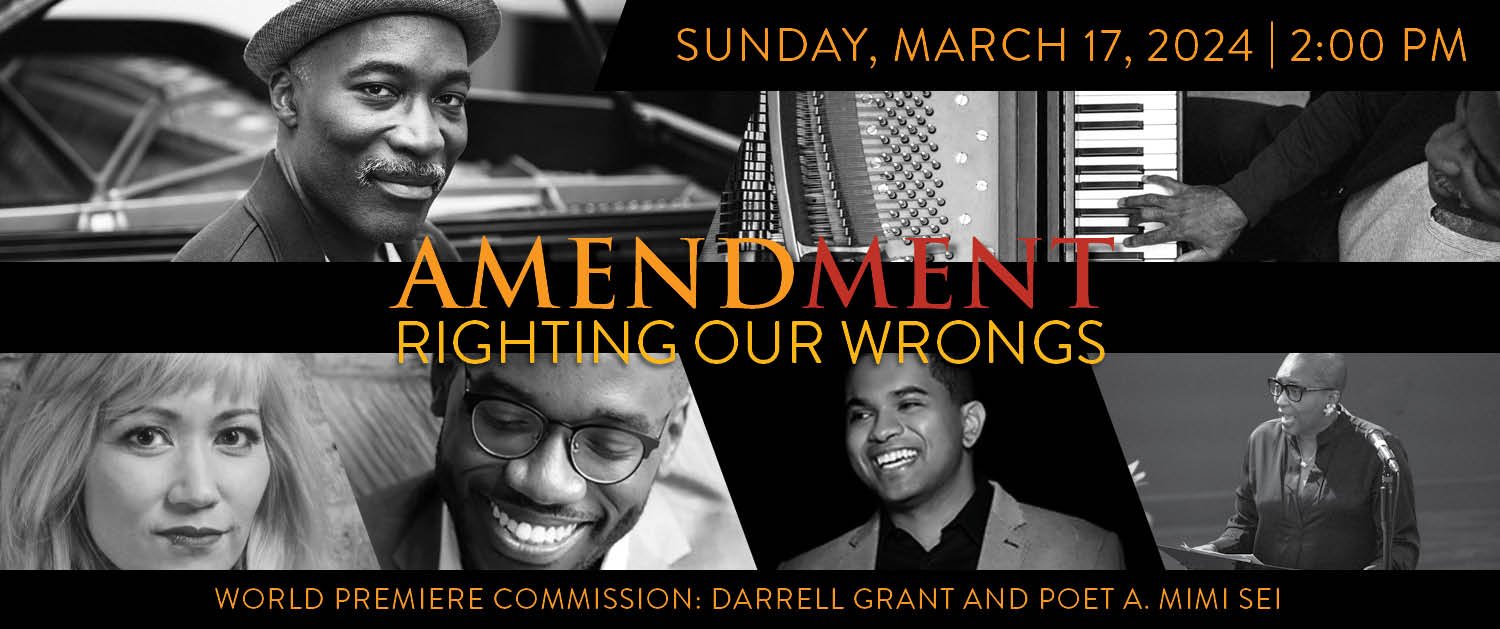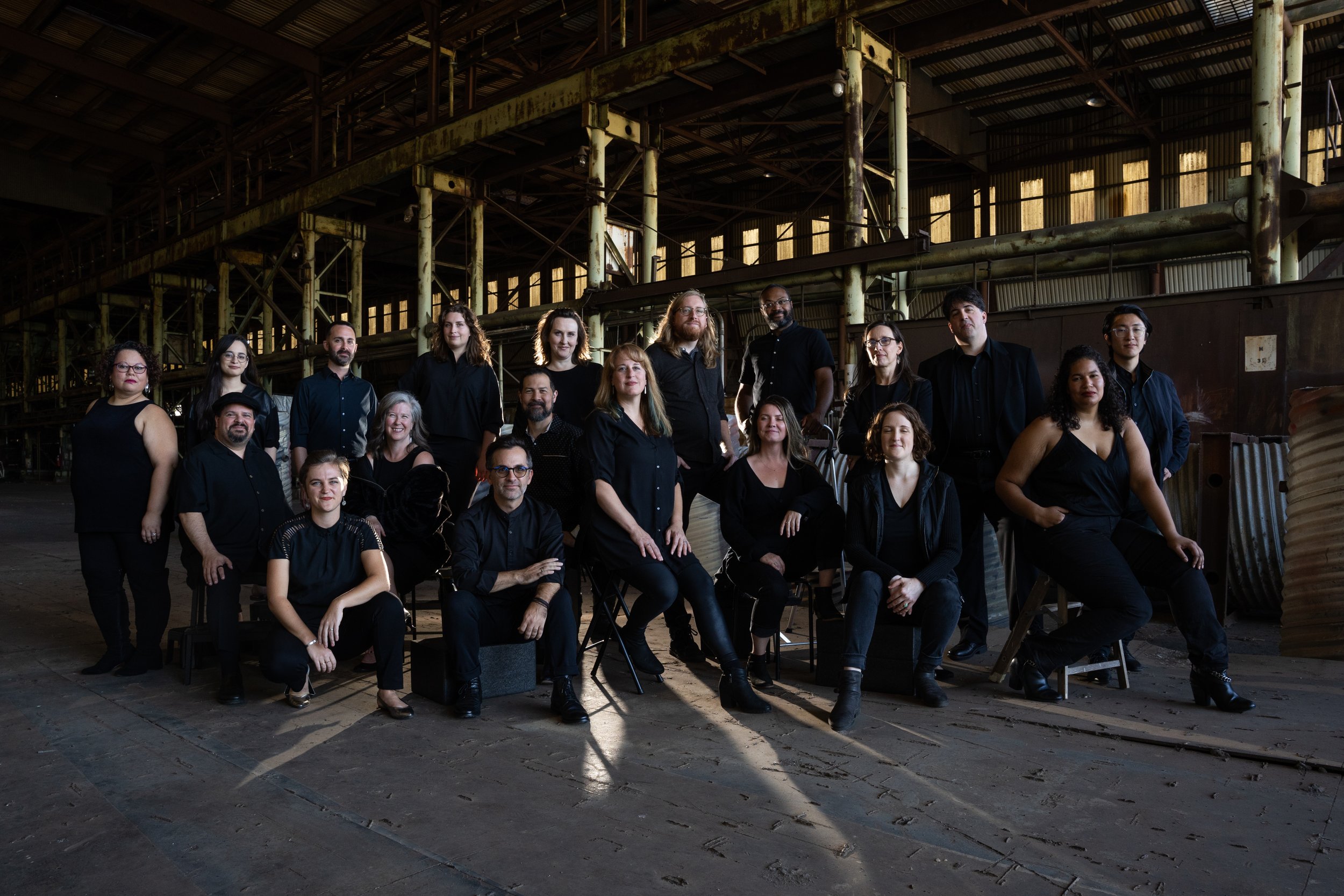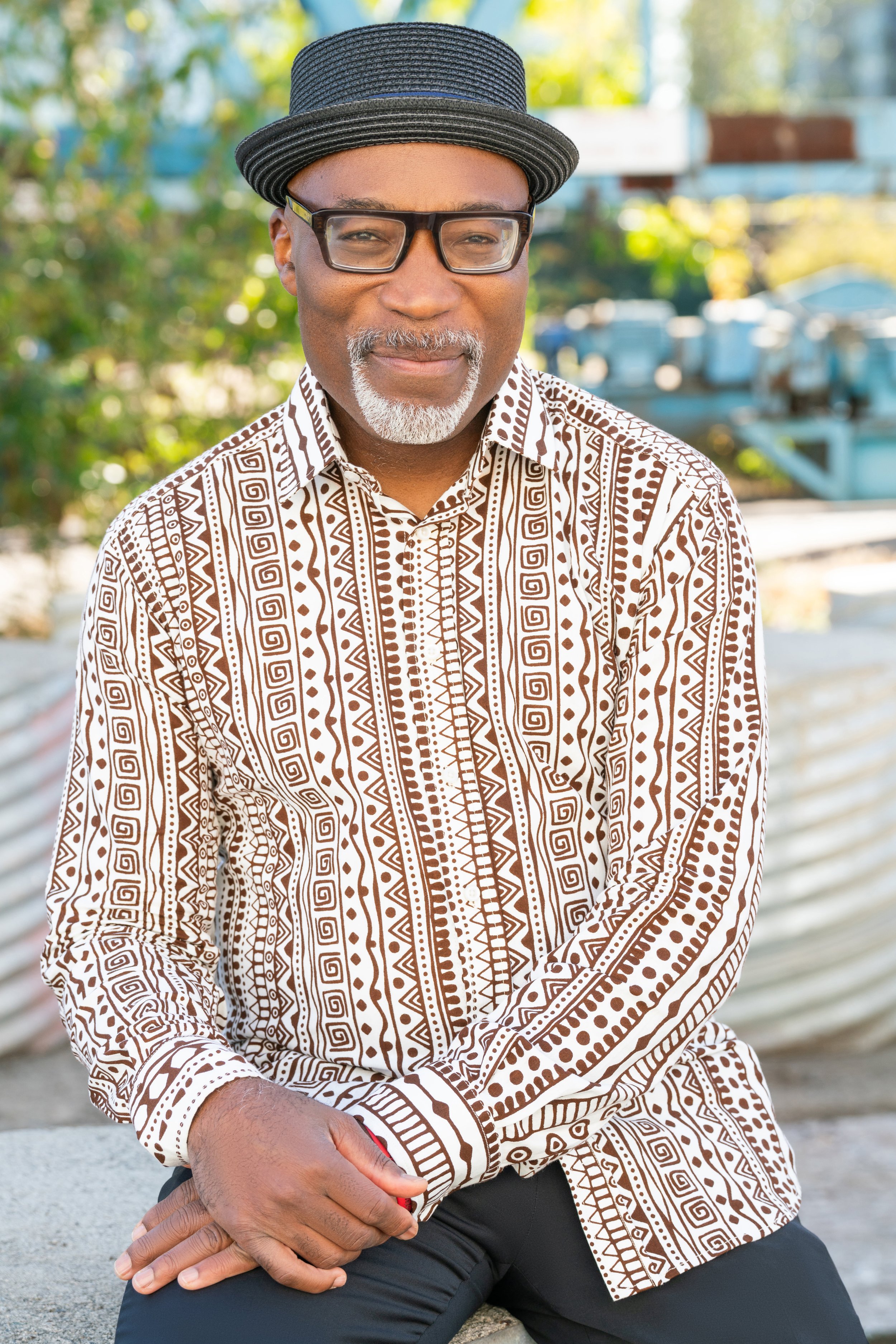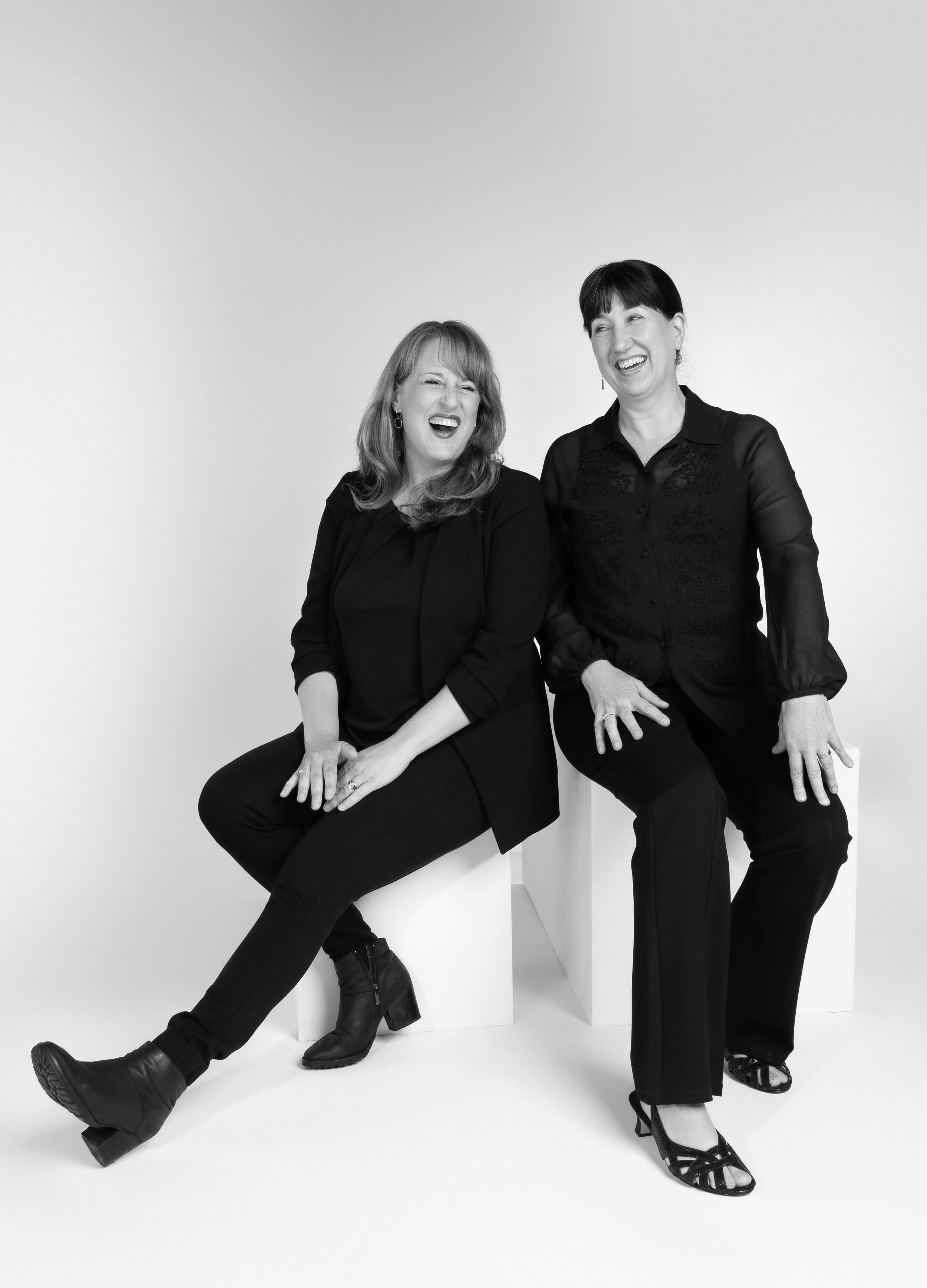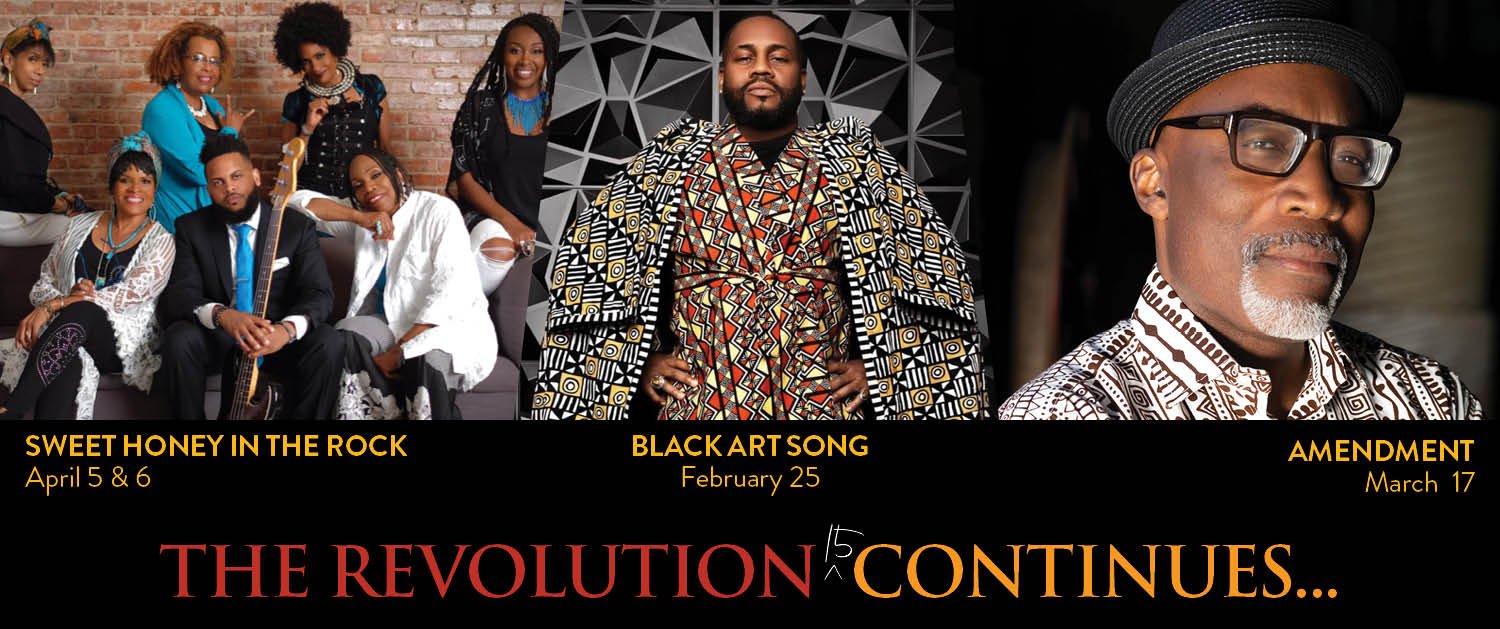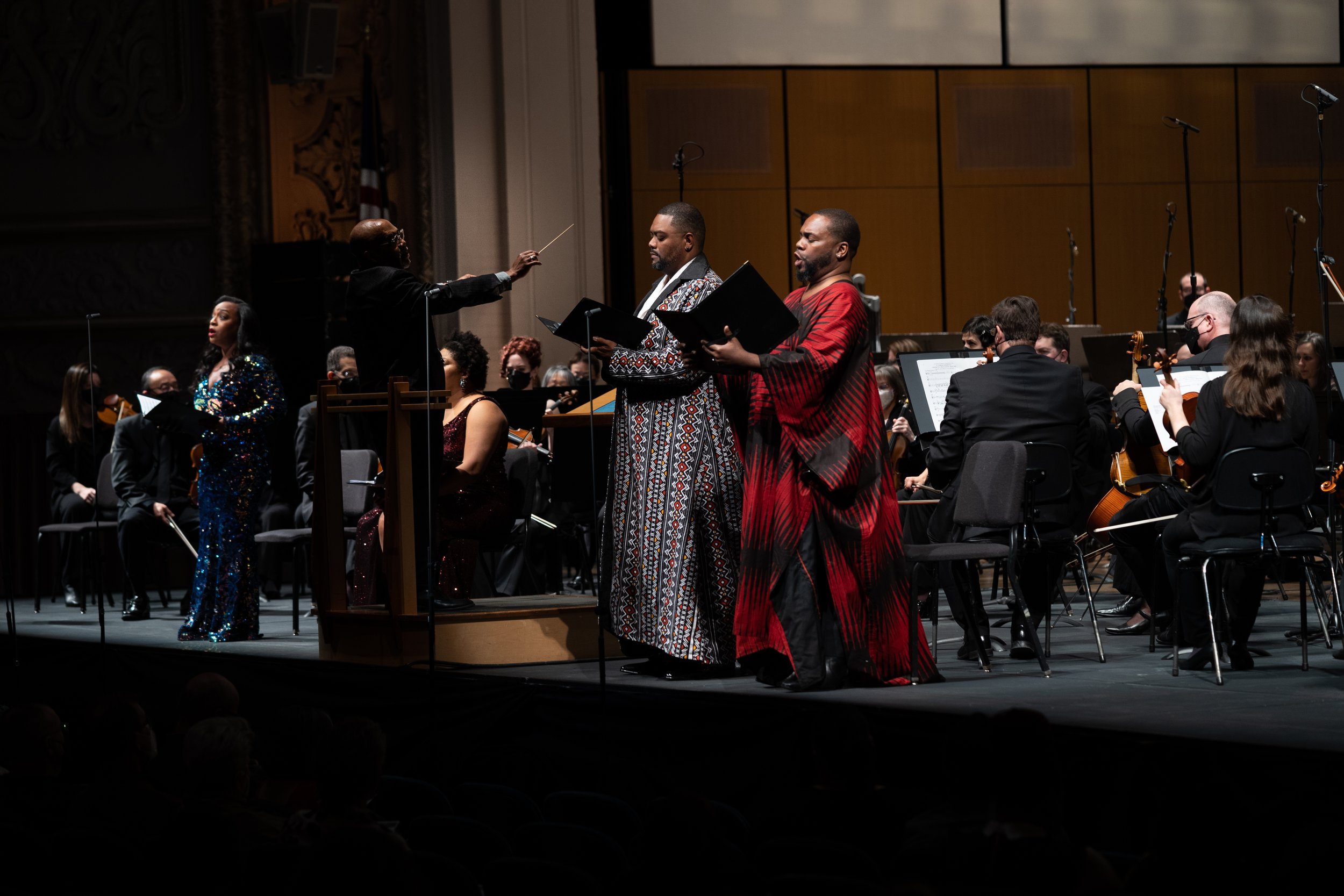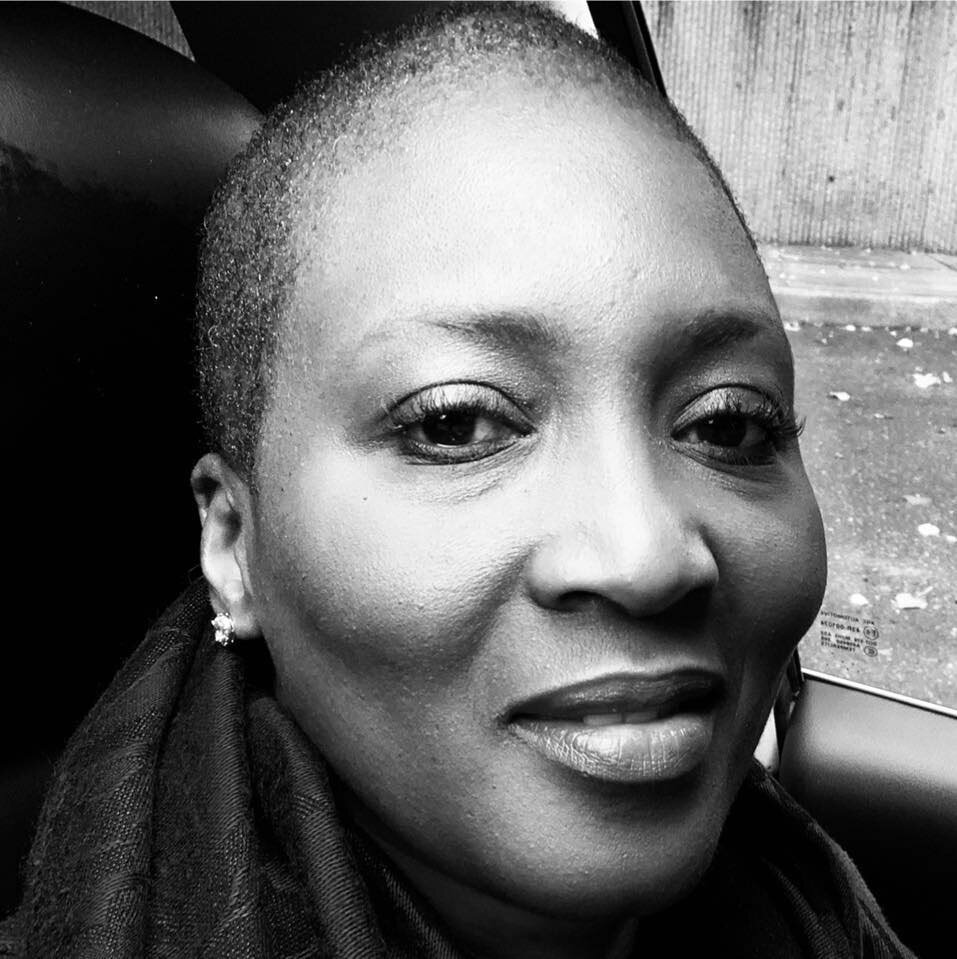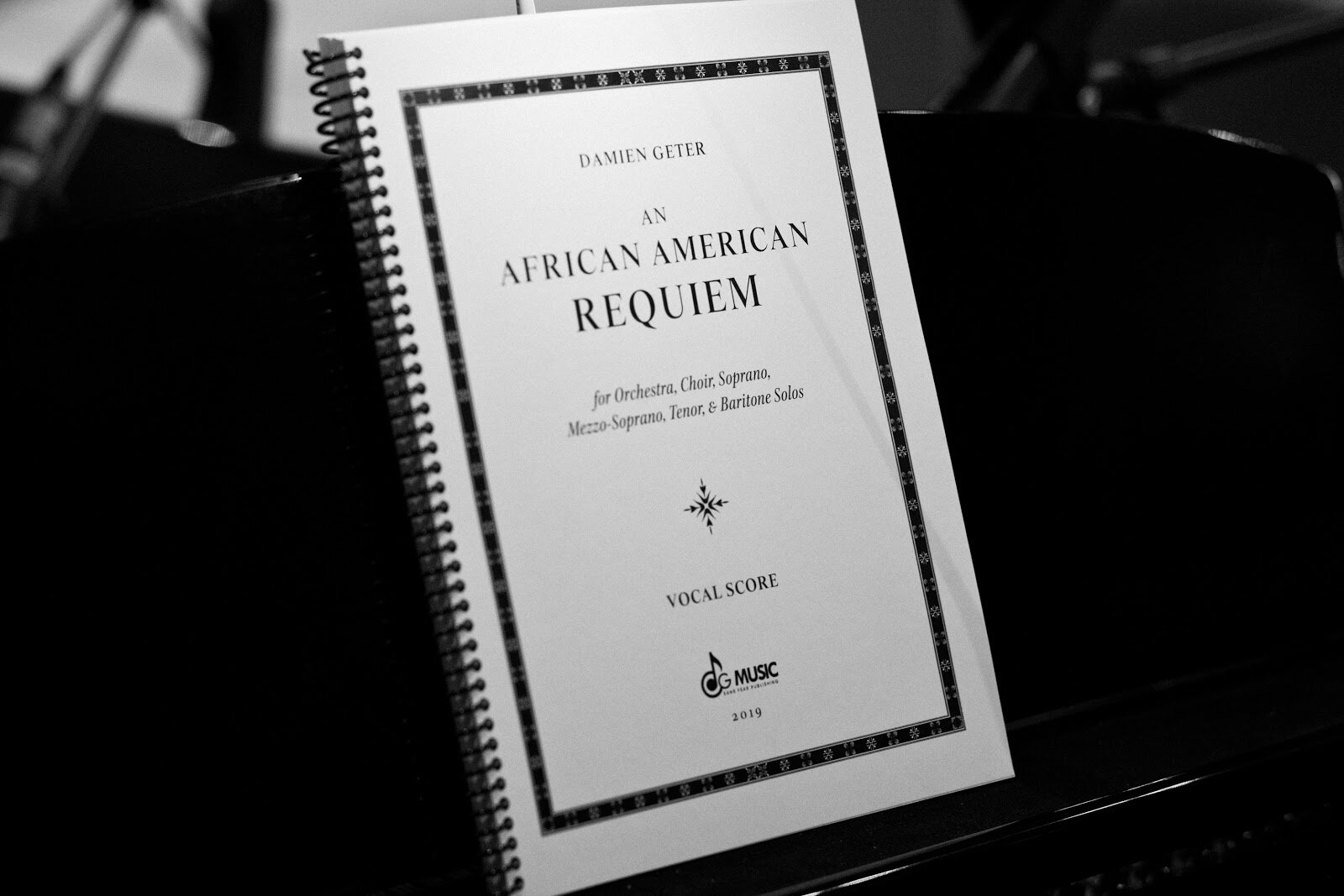Going UNDER THE SKIN with Resonance Ensemble
On Monday, March 25th, Resonance Ensemble teams up with the Hollywood Theatre to present a special screening of UNDER THE SKIN as part of the Hollywood’s Feminist March series. Through the Hollywood’s Community Benefit Screening program, the Hollywood Theatre hosts special screenings in support of—and in partnership with—local non-profit organizations. With a number of film lovers on our staff, Resonance Ensemble is thrilled to be a part of this wonderful community initiative.
Composer Kimberly Osberg
Johnathan Glazer’s UNDER THE SKIN stars actress Scarlett Johansson as an alien disguised as a beautiful human woman, luring men to their deaths in a mysterious black void. Composer—and Resonance Ensemble staff member—Kimberly Osberg worked with Hollywood Theatre’s Anthony Hudson (Community Programmer) to curate this special screening.
Today, Kimberly shares more about the film, its meaning, and dives a bit deeper into the incredible score by composer Mica Levi.
When I first approached the Resonance Ensemble team about working with Hollywood Theatre to host a screening, a lot of great films were tossed around featuring incredible vocal music we could highlight—we could do a screening of Amadeus, Dream Girls, or The Wiz, or perhaps a documentary with a score by a living composer, or even a Pedro Infante movie (the last of which I still would love to bring to Portland)!
So how on earth did we settle on a screening of an artsy sci-fi/horror film with an instrumental score whose story follows an alien disguising itself as a human woman to prey on men?
One of the things I love about working with Resonance Ensemble is their willingness to address, discuss, and grapple with difficult subjects. They have commissioned and performed works about racism and racial violence, houselessness, mental health, gender discrimination and violence, abortion, immigration, and more.
While their concerts tend to put a focus on empathy, hope, and transformative action, the music programmed and commissioned also leaves space for difficult truths to be shared directly and honestly. You cannot promote meaningful social change without facing the harsh realities that require it.
Under the Skin is a film that places the viewer in a strange context—an outsider, viewing humanity with a fresh eye. From this vantage point, we are asked to consider a wide array of human behaviors anew—from love, parenthood, and make-up to sex, violence, gender roles, and what makes someone an outsider.
ABOUT THE FILM
spoilers ahead—skip down to the section on music to avoid them!
Under the Skin, a 2013 film directed by Jonathan Glazer and starring Scarlett Johansson, is loosely based on a novel by the same name. While the film was a box office failure, it was named the best film of 2014 by a wide swath of publications and individual critics–even making best-of-the-decade lists by the end of the twenty-tens. The score, created by Mica Levi (more on them later!), was named the second-best of all time by Pitchfork magazine in 2019, and was hailed for its deeply symbiotic relationship to the film and boldly avant-garde soundscapes.
The film is not an easy watch, nor easy to recommend to other people. The whole film is unsettling—sometimes through slow-burn sequences requiring patience, sometimes in tense moments of implied horror, and sometimes through brash and open violence. Under the Skin is a fascinating—albeit at times brutal—addition to a long legacy of horror-as-social-commentary.
In an interview with the San Francisco Bay Guardian, Glazer stated “it’s like an ‘it’ becoming ‘she.’ It sees what’s reflected and it believes ‘That must be what I am now…” The film follows an alien (neither “he” or “she” in human terms) that transforms into a beautiful woman in order to lure its prey—human men. The whole film follows Johannson’s character, and gives us several scenes where she doesn’t display “normal human reactions” to a variety of different scenarios—her nudity is not sexual, her violence is not accompanied with anger or fear or shame, her witnessing people in crises does not gall her to help.
Over time, however, the alien starts to empathize with certain humans, becomes curious about the world around her, and abandons her hunting. She experiences kindness, she explores the fake body she inhabits. In the final scene, she is attacked by a man and the constructed body rips open—revealing the alien’s true form. The man, scared of what’s Under the Skin, lights it on fire.
While Glazer has mentioned in interviews he did not necessarily have a gendered intent, but a more humanity-focused one, many have viewed the film through a feminist lens—the alien experiencing what it means to be a “woman” in a patriarchal society, men’s fears of powerful women or women divorced from motherhood or sexuality, men’s rejections of what lies beneath the surface of women. The film does not show us how women actually are, but how they are treated. Whether it’s all good, all bad, or somewhere in-between is for the viewer to grapple with.
ABOUT THE SCORE
When Hollywood Theatre suggested we pick a film for their Feminist March series, this film was at the forefront of my mind. Not only because it’s a great (if devastating) film that explores so many of these topics, but because of the fantastic score by composer Mica Levi.
Composer Mica Levi (they/them) has written for film, symphony orchestras, and has even enjoyed a successful career as an experimental pop artist with their band Micachu and the Shapes.
Trained initially at the Guildhall School of Music in London, Levi’s extracurricular musical activities resulted in several albums, tours, and even a collaboration with the London Sinfonietta at Kings Place. Their band used non-standard tunings on the guitar, distorted effects, slowed-down samples, unusual time signatures, and even found-sound elements.
Hearing Levi’s score for Under the Skin, it’s hard to believe it was their debut film score. Using a limited set of acoustic instruments (largely strings, but also with flute, cymbals, a de-tuned drumset tom, and a block of wood), synthesized strings, and an arsenal of effects and filters, the score is impressively immersive.
Relying on just five main motives (in their own words, “her make-up, the cosmos, the aliens, her job music, and her feelings”), the themes go through a wide array of transformations and arrangements throughout the film.
“As far as I’m concerned, the cymbal rolls represent the cosmos; the planets, the powers beyond aliens and beyond people, the undeniable truth of it all. The fragmented, hustling, beehive material at the beginning of the film is meant to be the impossible alien energy that feels a bit uncomfortable to us; it has a lot of movement in it…It’s relentless. It sounds powerful. The drums are her sex drive - or prowling, her hunger. The melody that comes in, it acts as her perfume. It’s something that she puts on. She uses it to seduce these men. The swelling chords are her experiencing raw feelings. We used combinations of those throughout, to try and create an accurate representation of how it would feel to be her.”
While the gorgeous cinematography, engaging story, impeccable performances, and patient pacing of the editing creates quite an atmosphere, the music in this film is what pushes Under the Skin into a truly unique experience.
When we can’t discern what the origin of a sound is, it unsettles us. Levi uses this discomfort to great effect throughout the film by playing heavily with the line between “real” and “synthesized,” masterfully obscuring what’s being played by a live performer, what strange sounds are manipulations of live performances, and what are purely synthetic instruments.
A great example of this appears in the cue, Love, about 80 minutes into the film.
The lower strings tremolo, with some playing sul ponticello (a thinner, wirey tone), and some playing sul tasto (a duller, more muted tone). The upper strings gliss, eventually percollating in irregular rhythms. The glissing gestures and sustains, however, are doubled by synthesizers—overpowering the acoustic strings in the final mix—giving the whole cue a cold, mechanical feel.
From a study score for UNDER THE SKIN
Levi collaborated closely with sound designer Johnnie Burn—it’s difficult to discern when watching the film what sounds are diegetic (in the world of the film, heard by characters on screen), and what is purely score. Is that a pizzicato in the strings, or a dampened recording of water droplets? Is that murmur a gush of ocean water, or a wave of tremolos from a group of detuned string instruments?
These layers of uncertainty play with the ear to great effect throughout the film, adding exponentially to the “unsettled” atmosphere—and leaving space for deeper questions about what makes something human, what makes something synthetic, and what makes something real.
Final Thoughts
I love the Hollywood Theatre—the beautiful historic building, the awesome mix of new and old films, the outdoor screenings at parks in the summer, their dedication to presenting movies on actual 35mm and 70mm film when available, and the partnerships they support in the community—I couldn’t imagine a better partner to present Under the Skin on the big screen. It’s a real treat to both fans of the film who missed its theatrical run, and to new watchers who get to experience it for the first time as it was intended to be seen.
This screening won’t be for everyone, but for the people who come I know it will be a really powerful experience.
See you at the movies!
UNDER THE SKIN | COMMUNITY BENEFIT SCREENING
Monday, March 25th @7pm
Hollywood Theatre
For more information on the screening, visit the event page or click the button below to get your tickets!
Resonance Presents: Sweet Honey in the Rock®
“Their voices help pull back the curtain on who we are.
”
Resonance Ensemble joins forces with Sweet Honey In The Rock® to present two unforgettable evenings that celebrate the power of the human voice.
PORTLAND, OR — Resonance Ensemble, an award-winning vocal group, announces a new concert for their 15th-anniversary season: Sweet Honey In The Rock, the legendary three-time Grammy Award-nominated a cappella ensemble. Since its inception in Washington D.C. in 1973, the group has expressed their history as Black women through song, dance, and sign language. Now they bring this rich legacy to Portland.
Mark your calendars for April 5 at the Reser and April 6 at The Armory for an evening of music that celebrates the limitless power of the human voice. Sweet Honey in the Rock and Resonance Ensemble – two groups renowned for their harmonious blend of music and activism – invite listeners to join in an exploration of the human experience, fostering unity and hope for a brighter future.
Barbara Hunt, ASL interpreter for Sweet Honey, is honored to follow in the footsteps of Dr. Shirley Childress Johnson, who interpreted Sweet Honey performances for over 35 years.
Throughout five decades, Sweet Honey in the Rock has worked to create engaging music that consistently takes an active stance toward making our planet a better place for all in which to live. Their musical landscape embraces multiple genres/generations and addresses civil & human rights, women’s issues, gun violence, death, love, spirituality, children’s songs, and so much more.
American Sign Language Interpretation at each performance. With core member Barbara Hunt interweaving American Sign Language interpretation with the music, each performance provides a mesmerizing fusion of movement and voice, harmonizing spoken and sung words to create a captivating ballet of expression.
Members of the Deaf and Hearing-Impaired Community can purchase reserved seats with optimal sight lines for the ASL interpretation by contacting the venue box offices directly.
Resonance to Perform as the Opening Act for Both Concerts: Adding to the richness of this musical experience, Resonance Ensemble, as the producing organization, will take the stage as the opening act for both concerts, showcasing a selection of their own acclaimed a cappella compositions for social justice, featuring works by renowned composers Jasmine Barnes, Cecille Elliott, and Damien Geter.
Tickets are on sale at the venue box offices directly
Friday, April 5, 2024 | 7:30PM @The Reser
Saturday, April 6, 2024 | 7:30PM @The Armory
###
Reflecting on the Past, Acting Towards the Future
All photos in this post are by Rachel Hadiashar
This past weekend, Resonance presented Amendment: Righting Our Wrongs, featuring a world premiere by Darrell Grant and A. Mimi Sei.
This last weekend, Resonance had the great honor of unveiling a new work by composer Darrell Grant and poet A. Mimi Sei, From the Book of Sankofa, along with powerful works by composers Melissa Dunphy, Joel Thompson, and Rosephanye Powell. Joined by the Oregon Remembrance Project’s Taylor Stewart, the evening called on attendees to face the past in order to cultivate a better future.
As we reflect on this powerful evening, we encourage you to explore our Enhance Your Experience page, which includes detailed information on the performers, composers, writers, artists, and the driving mission which supported the program.
Pianist Hannah Brewer and conductor Shohei Kobayashi
Opening the concert program, Joel Thompson’s Hold Fast to Dreams set texts by Langston Hughes. With vibrant text painting in the opening lines and a wistful melody for the main theme, pianist Hannah Brewer beautifully executed the lush and flowing piano part. The performance was accompanied by visuals of school children’s artwork in response to the poems.
Oregon Remembrance Project’s Taylor Stewart
One of the biggest highlights of the performance were the reflections shared by Oregon Remembrance Project’s Taylor Stewart. His powerful, poignant, and hopeful reflections left audiences with a deeper understanding of how they have power as individuals to rectify historical injustices.
Conductor Katherine FitzGibbon leading Resonance Ensemble during the Dunphy
The most substantial work on the program, Melissa Dunphy’s Amendment: Righting Our Wrongs showcased Oregon Symphony prinicipal cellist Nancy Ives along with the choir—her full, singing tone providing almost symphonic support throughout the six-movement work.
Setting texts of abolitionist and suffragist activists of color against various legal texts, the work powerfully showcases how the US has often fell short on its promises of “liberty and justice for all.”
Cellist Nancy Ives
Soloist Maria Collinsworth during the Dunphy
Clarinetist Barbara Heilmair
Following intermission, clarinetist Barbara Heilmair joined Resonance for another Thompson work, The Caged Bird Sings for Freedom. The work sets Maya Angelou’s famous text, alongside musical quotes from Thompson’s Hold Fast to Dreams.
Providing sparkling facility and a sweet, singing tone of the bird, the clarinet sang out over the lush, yearning texture of the choir—finishing in a final, triumphant flourish that received one of the loudest applauses of the performance.
Of course, the climax of the performance came with the long-awaited premiere of Darrell Grant and A. Mimi Sei’s newest collaboration, From the Book of Sankofa. With Nancy Ives rejoining the choir at the cello and Hannah Brewer tackling the demanding piano part, Resonance was also joined by A. Mimi Sei, who provided a captivating spoken-word performance during the piece.
Composer Darrell Grant receives a warm applause from a packed house following the premiere of his work
Poet A. Mimi Sei
The work was a gratifying challenge for Resonance, with Grant’s text-setting demanding both perfect blending of uniform rising and falling harmonies and steadfast independence from every section throughout the work as each section interjected and shifted harmony. As Grant’s program notes share, this setting of Sei’s text provided a powerful space to reflect on the key words describing Sankofa and its spirit (Mission, Essence, Reflection, Progress, Reimagine, Channel, Dignity, Migrate, Reincarnate, Piety, Reverence, Stir), as well as “questions of what we will pass on, what we must sacrifice, and what we must always remember in order to realize the dreams we hold for ourselves, our children, and our communities.”
Vocalists Katherine FitzGibbon, Matthew Gailey, and Emily Lau
Closing out the program was Rosephanye Powell’s triumphant work, I Dream a World, another Langston Hughes setting—this time of his poem “To You.”
Beautifully bookmarking the program in Hughes texts about dreams, I Dream a World acts as a promise to fulfill Hold Fast to Dreams’ request to continue dreaming and acting towards a better future for all.
From left to right, conductor Shohei Kobayashi, composer Darrell Grant, poet A. Mimi Sei, Oregon Remembrance Project’s Taylor Stewart, and conductor Katherine FitzGibbon
After the performance, a great deal of the audience stayed for a panel discussion with artists A. Mimi Sei and Darrell Grant, conductors Shohei Kobayashi and Katherine FitzGibbon, and Oregon Remembrance Project’s Taylor Grant. With a surprising array of connections and shared values, the conversation highlighted the many intersections of music, poetry, remembrance, activism, and community.
Conductor Shohei Kobayashi (far left), pianist Hannah Brewer (far left behind Shohei), composer Darrell Grant (far right), and the Resonance Ensemble vocalists at the Hallowed Halls recording studio.
Following concert day Resonance Ensemble headed to the beautiful Hallowed Halls recording studio the next evening with engineer Matt Greco (Rye Room) and composer Darrell Grant to record From the Book of Sankofa.
The session marks the very beginning of our new recording project, which will exclusively feature Resonance Ensemble-commissioned works. The rest of the pieces that will appear on the album will be sung live on our June 8th concert—we hope you can join us!
Resonance Ensemble is deeply grateful to artists Darrell Grant and A. Mimi Sei, performers Nancy Ives, Barbara Heilmair, and Hannah Brewer, conductors Shohei Kobayashi and Katherine FitzGibbon, Oregon Remembrance Project’s Taylor Stewart, the Resonance Ensemble vocalists, our sponsors and generous donors who made the program possible, and—of course—all those who joined us for this deeply moving program as audience members.
UP NEXT
Check out the performances yet to come this spring — we hope to see you there!
SWEET HONEY IN THE ROCK
FRIDAY, APRIL 5 | 7:30pm | Patricia Reser Center
SATURDAY, APRIL 6 | 7:30pm | The Armory
MISSION 15 | A FIFTEEN-YEAR ANNIVERSARY CONCERT
SATURDAY, JUNE 8 | 7:30pm | Winningstad Theatre
Get to Know The Oregon Remembrance Project
“The work we do is something unique that hasn’t been done [in Oregon] before…We’re making a difference in communities across Oregon and for that reason I will keep pushing on.”
Looking to Oregon’s Past to Inspire a better future.
The Equal Justice Initiative, based in Montgomery, AL, has meticulously chronicled the haunting legacy of nearly 6,500 African American victims of lynching spanning the years 1865 to 1950. Oregon, too, bears witness to this history. One such victim was Alonzo Tucker, whose life was tragically cut short in a lynching in Coos Bay, OR, in 1902, witnessed by a crowd of 300.
Our next concert, Amendment: Righting Our Wrongs, showcases trailblazing composers, poets, and activists including Taylor Stewart, the visionary force behind the Oregon Remembrance Project. The Oregon Remembrance Project works with communities throughout Oregon to unearth stories of injustice and foster the necessary dialogue for healing and reconciliation. Taylor’s work began in Coos Bay, grappling with the question, “How do you reconcile a lynching?”
This week, we had the privilege of sitting down with Taylor to delve into the genesis of this groundbreaking movement and the transformative work that lies ahead.
Let’s get to know Taylor Stewart and the Oregon Remembrance Project.
Taylor Stewart, founder of ORP
Tell us a little bit about how you’re connected to Portland.
I’ve lived in Portland my whole life. I graduated from the University of Portland in 2018 with a degree in Communication and a Master’s in Social Work from Portland State University in 2021. I figure if I can’t change the whole world, or even the whole country, I might as well change where I’m from! So, I choose to do this work [with the Oregon Remembrance Project] in Oregon, and have plans to do so for the rest of my life.
Did you always have an interest in history? Or did that come to you later on?
No. I was never big into history. I spent my whole life wanting to be a lawyer. I knew since middle school that I was going to law school. I spent 90% of that time aspiring to be a criminal prosecutor because I wanted to be “tough on crime.” Ironically, I was a passionate supporter of the death penalty and even gave a speech my junior year of college in favor of capital punishment.
I had always been passionate about justice, and today my passion has never changed. The only thing that's changed is my understanding of injustice. In the case of capital punishment, I realized that this system that I had counted on to dispense the most ultimate form of justice was, in fact, too flawed to produce anything but injustice.
“I figure if I can’t change the world, I might as well change Oregon! ”
[After graduating from University of Portland,] I actually started at Lewis & Clark Law School in the fall of 2018 with a newfound passion to be a civil rights lawyer. However, I was only at law school for a day and a half. After a panel of current and former students on the first day made it clear to me that I would be beating my head up against a wall for three years if I expected the integration of topics such as race to be an integral part of my law school education, I had a feeling deep in my gut that I could do more good if I pursued a career outside of law. So, the next day I went into my advisor’s office, told her I was leaving, got in my car, and realized I had just hit “reset” on my entire life. I’ll never forget driving home that day wondering if I had just made the biggest mistake of my life.
From the National Memorial for Peace and Justice, one of the inspirations for the Oregon Remembrance Project’s founding.
Can you tell us a little bit about what inspired the founding of Oregon Remembrance Project?
Shortly after I graduated from the University of Portland in 2018, I went on the University’s Civil Rights Immersion [program] where we went to Alabama, Mississippi, and Arkansas. I had especially been looking forward to the portion of the trip where we would be going to Montgomery, AL because we had plans to see the Equal Justice Initiative’s new museums.
“I had lived in Oregon my entire life—I couldn’t believe that I had to go all the way to Montgomery, AL to learn that there had been at least one widely documented lynching of an African American in Oregon [Alonzo Tucker]. I couldn’t believe that this story wasn’t a part of the Oregon consciousness and I left these museums determined to share this history with others.”
In April 2018, EJI opened up the Legacy Museum, which chronicled the evolution of slavery, and the National Memorial for Peace and Justice, a memorial to the thousands of African American lynching victims. Visiting these museums was a powerful encounter with history for me.
In conjunction with the National Memorial for Peace and Justice, EJI had started the Community Remembrance Project, which aimed to hold a series of acts of remembrance in the communities in which the lynchings of African Americans occurred.
There was an interest form online about getting involved with the Community Remembrance Project and I would love to say that when I first saw that I was immediately like “Alright, sign me up!” But that wouldn’t be true. In fact, I was too nervous to fill out the interest form. I was a recent college grad with zero relevant experience and I figured to myself, “Who am I to really think that I could be of any help?”
So, I decided that I wasn’t going to fill out the interest form. Thankfully, two encounters from the rest of my trip inspired me to change my mind.
The first was a John Lewis quote of “If not us, then who? If not now, then when?” I don’t remember where I was when I first saw that quote but I remember getting that sinking feeling in my stomach as I realized that John Lewis was talking right at me. At this point, I still wasn’t ready to fill out the interest form but I began to think more seriously about it.
From Mississippi Civil Rights Museum, another inspiration for ORP’s founding.
“So, there at the Mississippi Civil Rights Museum, I learned that you don’t need to be an extraordinary person to do extraordinary things. I learned to start asking the question, “Why not me?””
The second encounter was at the Mississippi Civil Rights Museum. There they just focused on Mississippi history, so there was no Martin Luther King Jr., Rosa Parks, Malcolm X—individuals who we deify and are hard to relate to. Instead, the museum focused on the stories of everyday Mississippians who did their part to pave the way for justice.
This ultimately gave me the courage to reach out to Equal Justice Initiative, and never in a million years did I think that doing so would completely alter the trajectory of my life.
So, amid all of those experiences, it was really the Equal Justice Initiative’s work that rallied you?
Founder of the Equal Justice Initiative (EJI), Bryan Stevenson, pictured at The Legacy Museum.
Bryan Stevenson, executive director of EJI, is my personal hero. I actually got to see him in-person one time when he spoke at Beth Israel Synagogue in 2019. Bryan gave his usual speech about how we need to be more proximate to the things we need to change, but what he said at the very end is what stood out to me the most. He said, “The next time I come back to Portland, I want you to have gotten rid of your death penalty in Oregon. So, me, standing in the very back, thought to myself, “Ok, Bryan. I’ll try my best.” I had the opportunity to introduce Bryan for a conference in 2021 and I told him that I was going to end the death penalty in Oregon so that he could come visit me.
Did the connection with EJI result in the Oregon Remembrance Project?
Yes, in collaboration with the EJI Community Remembrance Projects. The Oregon Remembrance Project began simply—as a means to reconcile the lynching of Alonzo Tucker, Oregon’s most widely documented African American victim of lynching—but I’ve grown to see the power of reconciliation to rectify further instances of historical injustice.
Taylor worked with the community of Coos Bay, Oregon for three years to properly memorialize Alonzo Tucker.
In February 2020, a crowd of 200 gathered for a soil-collection ceremony near the spot where 28-year-old Alonzo Tucker was killed in 1902. The soil was collected from three locations and each bit of soil told part of Alonzo Tucker’s story. On June 19, 2021, the community gathered to pay witness to the unveiling of Alonzo Tucker’s historical marker.
Taylor Stewart led the Grants Pass Remembrance at the Boatnik parade in May 2023. A community parade that the KKK used to march in, their goal was to replace the shadow of those white hoods with the brightness of their yellow t-shirts.
That project in particular really solidified your path forward, then?
I’ve found my passion in storytelling, and I think of the historical education that I do now as just that—storytelling. What I like about thinking about “history as stories,” and in particular stories of injustice, is that it empowers us to determine what we want the end of the story to be.
If there’s a story of historical injustice that upsets us, let’s simply change the ending to the story. It’s that simple. The things we do contemporarily add chapters to the stories of history and we have the power to write endings of justice to stories of injustice.
Since its founding, ORP has been educating Oregonians across the state on Alonzo Tucker's story, the acts of remembrance we undertook in his name, and the next steps that are required of us to truly bring him a semblance of justice—ending the death penalty in Oregon.
“While we can’t change what happened to Alonzo Tucker, we can change the ending to his story; his legacy will one day be remembered as having helped end the death penalty in Oregon. We consider that redemptive justice—that we were able to transform the injustice of his story into a legacy of justice—which ultimately affirms the value of every Black Oregonian.”
Alonzo Tucker
What is ORP working on currently?
Taylor Stewart speaks to a group of residents in Coo’s Bay, Oregon.
Our work now encompasses the injustices of Oregon's Black exclusionary laws, sundown towns, and KKK history. For each of these projects we strive to develop unique forms of contemporary repair that lead to communal healing through social change.
We are seeking to memorialize a man named Jacob Vanderpool—the only known person expelled from Oregon under the state's Black exclusionary laws—by developing communal and statewide strategies for the recruitment and retention of people of color. The goal is to repair the cultural expulsion still fomented on communities of color in Oregon.
We are helping former sundown towns develop new identities as sunrise communities—places where everyone can feel safe, respected, and like they can call that space their home—as we place the United States' first-ever historical markers about sundown towns. These are important efforts to repair the lack of belonging experienced by African Americans in communities across Oregon.
A crowd of residents gather at Coos Bay History Museum to hear Taylor Stewart speak on the history of Alonzo Tucker.
Through education, elevating cultural celebrations, and hosting community naturalization ceremonies, we are also working to repair the Oregon KKK's definition of “100% American” (white, straight, Christian Protestants) as we celebrate the diversity of Americans who find their home in Oregon.
ORP believes that we can transform our broken past into a beautiful future through narrative changes that ultimately result in tangible change in communities.
How can someone in our community help with ORP’s work?
We could really use financial support to help continue our work. The work we do is something unique that hasn’t been done a lot before, and so our programs don’t often fit into many of the pre-existing funding opportunities. Sometimes I’m not rural enough, sometimes I’m not Black enough, and I’m often told “Your work is so important. Unfortunately, it just doesn’t quite match our funding priorities.” It has weighed heavily on my spirit.
Back in December of this past year, I wondered if I could feasibly continue ORP through 2024. However, after seeing first-hand the impact our MLK events had in Grants Pass this year, I was reminded why I can never stop ORP—the work is too important. We’re making a difference in communities across Oregon and for that reason I will keep pushing on. The money will follow in due time.
The official historical marker for the lynching of Alonzo Tucker in modern-day Coos Bay, Oregon.
Join us Sunday, March 17 AT 2:00pm
and learn more about Taylor's search for an answer to the impossible question, “How do you reconcile a lynching?”,
what’s next for the Oregon Remembrance Project,
and how you can support this important work.
AMENDMENT: RIGHTING OUR WRONGS
FOR FURTHER READING
ARTS MADNESS IS BACK!
Plan your own Portland Arts Crawl and Save Big!
PORTLAND, OR — Resonance Ensemble announces the return of their March community initiative, Arts Madness! Founded in support of the vibrant arts scene here in Portland, Resonance and other local arts organizations have come together to offer discounts on shows, recordings, merch, and more throughout the month of March.
"People often fall into a familiar routine when it comes to attending live events," explains Liz Bacon, Resonance’s Director of Marketing. "With Arts Madness, we're shaking things up, offering a diverse array of events all in one place. Our goal is to inspire people to explore new concerts and experiences they may not have considered otherwise."
From the opera stage and concert hall, to unique and intimate local venues, the program encourages arts lovers from all over PDX to explore what their community has to offer.
“We love each and every one of the organizations participating this year,” says Resonance Ensemble staff member Kimberly Osberg, coordinator of Arts Madness. “It has been so exciting to see the hunger for deeper collaboration among the arts groups in town, and Resonance is proud to be a part of such a mutually-supportive arts scene.”
Featured organizations include a wide host of local favorites: Resonance Ensemble, Portland Opera, Chamber Music Northwest, Fear No Music, Third Angle New Music, Cappella Romana, In Mulieribus, In Medio, and the Portland Jazz Composers Ensemble.
“The team at Portland Opera is over the moon to participate in Resonance Ensemble’s collaborative activation of the local arts community—ArtsMadness—this March,” says Jen Wechsler, Portland Opera’s Marketing and Audience Development manager. “We’re excited to see this program evolve and grow in its second year and hope to reach the next generation of opera lovers with the West Coast premiere of the beloved children’s book The Snowy Day!”
"We're grateful to collaborate again with Resonance on Arts Madness," says Cappella Romana Executive Director, Mark Powell. "If you're a regular patron of a concert series, try something new this spring; you'll be glad you did!"
Fear No Music’s Executive Director, Monica Ohuchi, shares, “What an opportunity to celebrate the rich and diverse arts culture we have right at our fingertips in Portland! Fear No Music is so honored to be partnering alongside such deeply impactful organizations."
“Kim and the Resonance Ensemble team truly understand what the phrase ‘a rising tide lifts all boats’ means, and they are willing to make it happen. This is a vital service to arts organizations in order to activate this community’s adventuresome patrons,” says Chamber Music Northwest’s Marketing & Communications Director, Nicole Lane. “It is such a delight for us to partner with Resonance Ensemble again this year for Arts Madness!”
How It Works
Plan your own arts crawl and save big on fantastic events, recordings, and merch Portland artists and ensembles have to offer. This year, discounts are more accessible than ever—simply find the event you want to attend, click the link, and apply the listed discount codes at check out!
See the full calendar of events and get your discount codes at the link below.
Black Art Song: A Night To Remember
Baritone Kenneth Overton and Sound Liberator Joe Williams perform to a transfixed audience at the Portland Art Museum. (R. Hadiashar 2024)
This past weekend, Resonance presented Black Art Song at the Portland Art Museum.
With music curated by Resonance Ensemble’s Damien Geter, the performance was a wealth of artistic excellence—from the dynamic and vibrant works on display in the Black Artists of Oregon exhibit (curated by Intisar Abioto), the riveting performances from Grammy-award winning baritone Kenneth Overton and Sound Liberator Joe Williams at the piano, and reflections by curator Damien Geter and Resonance board member and commissioned-poet A. Mimi Sei.
As we reflect on this powerful evening, we encourage you to explore our Enhance Your Experience page, which includes detailed information on the performers, composers, writers, artists, and the driving mission which supported the program.
Damien Geter welcomes all to the Portland Art Museum. (R. Hadiashar 2024)
“Tonight we celebrate the profound legacy of Black composers and poets who have made significant contributions to the art song canon,” said Co-Artistic Advisor and curator of the concert Damien Geter, who welcomed the packed room and then quickly introduced the performers, Baritone Kenneth Overton and Sound Liberator Joe Williams.
Sound Liberator Joe Williams and Baritone Kenneth Overton (R. Hadiashar, 2024)
The concert opened with a powerful a cappella rendition of the spiritual “Over My Head.” Starting from the back of the gallery and slowly processing through the audience towards the stage, Overton’s deeply emotive and enveloping baritone voice immediately captured the attention of the audience.
Kenneth Overton (R. Hadiashar 2024)
Overton shared his personal connections to the pieces that were performed. Before a powerhouse performance of works by H. Leslie Adams, he shared, “Adams is one of my all-time favorite composers. At age 90, he is still putting black notes on white paper, and it is an honor to be sharing his music with you all.”
With texts by Langston Hughes, Morgan Collins, and James Weldon Johnson, these four dynamic selections from the Nightsongs collection proved to be an audience favorite.
Board Member A. Mimi Sei opens the second half of the concert with inspiring words. (R. Hadiashar 2024)
After intermission, Resonance Ensemble board member and commissioned-poet, A. Mimi Sei, announced the official launch of the Donors for Black Artistry initiative. Seeking to offer support for Black artists across a wide variety of artistic disciplines, Black Art Song is the inaugural concert supported by the program. “We can’t just be good listeners,” stated Sei. “We have to move—move our minds, our bodies—towards action that inspires change. Resonance does that with programs like this.”
Starting the second half, Sound Liberator Joe Williams performed his own arrangement of Florence Price’s Night at the piano. A gorgeous and evocative rendition of the work, Williams’ sparkling instrumental was received with thunderous applause from the gallery.
Overton and Williams concluded the concert with two powerful settings of spirituals, impressively arranged by David Ragland (Steal Away) and Timothy Amulkeke (Stand the Storm).
Sound Liberator Joe Williams. (Photo: R. Hadiashar 2024)
The duo dancing during the first half finale: H. Leslie Adams “Creole Girl” (R. Hadiashar 2024)
With guests staying long after the show to discuss both artwork and music, Black Art Song proved to not only be a powerful program of music, but a deeply moving evening of community and celebration of Black artistry.
““Thank you so much for the amazing concert last night. Surrounded by art and Kenneth Overton’s powerful voice was a very special experience. Not every singer can mesmerize an audience in the way he can.””
S. Renee Mitchell, Chisao Hata, and Ronni Lacroute are all smiles from the front row. (R. Hadiashar 2024)
Resonance Ensemble is deeply grateful to the Portland Art Museum for their support and for the incredible curation of the Black Artists of Oregon gallery (curator Intisar Abioto) which inspired the program, along with artists Kenneth Overton and Joe Williams, concert curator Damien Geter, our sponsors and generous donors who made the program possible, and—of course—all those who joined us for this incredible program as audience members.
A happy group of Resonance staff, board members, composers, and supporters surround Kenneth Overton after the concert. (R. Hadiashar, 2024)
UP NEXT
Check out the performances yet to come this spring — we hope to see you there!
AMENDMENT: RIGHTING OUR WRONGS
SUNDAY, MARCH 17 | 2pm | Alberta Rose Theatre
UNDER THE SKIN | SPECIAL SCREENING!
+ a special musical presentation before the show
MONDAY, MARCH 25 | 7pm | Hollywood Theatre
SWEET HONEY IN THE ROCK
FRIDAY, APRIL 5 | 7:30pm | Patricia Reser Center
SATURDAY, APRIL 6 | 7:30pm | The Armory
MISSION 15 | A FIFTEEN-YEAR ANNIVERSARY CONCERT
SATURDAY, JUNE 8 | 7:30pm | Winningstad Theatre
Resonance Ensemble named Ensemble-in-Residence at Linfield University
PORTLAND, OR — Resonance Ensemble hits the road this week, beginning a semester-long residency of performances and workshops at Linfield University. Known as the Lacroute Composer Readings and Chamber Music Mentorship Program, the residency offers student composers the opportunity to work closely with professional mentor musicians. The first concert of the residency will feature commissions and other works from living composers from across Resonance Ensemble’s 15-year history, and takes place at 7pm on Thursday, February 15th at Linfield’s Vivian A. Bull Music Center, in Delkin Recital Hall.
“The works we are performing are deeply meaningful to Resonance Ensemble and have been impactful on our listeners in Portland, and we’re excited to share them with the Linfield community now,” says Artistic Director Dr. Katherine FitzGibbon. “We are thrilled that Linfield invited us to be in residence this semester so that their composition students will have access to performances and coaching opportunities with Resonance’s professional choral musicians.”
““I’m really grateful for the chance I’ve had to compose for Resonance. Writing music is one of the big passions of my life, and composing for voice is a really unique and compelling world to play in. I’m so excited to work with the Linfield students.”
Composer Workshops, and Performances
Dr. Katherine FitzGibbon, Resonance Ensemble Artistic Director
In addition to the performance, FitzGibbon and Resonance Ensemble’s Cecille Elliott will be conducting a series of educational lectures for student composers at Linfield, sharing their expertise on how to write for voices and mentoring the students as they work on their own choral compositions throughout this semester.
Cecille Elliott, Resonance Ensemble commissioned-composer and vocalist
Elliott, an audience favorite from Resonance Ensemble, is a multifaceted musician specializing in voice, violin, and viola. Her Resonance-commissioned work, We Are Murmurs, premiered at the 2023 Dirty, Stupid Music cabaret–and has quickly become one of Resonance Ensemble’s most-performed works.
Throughout the semester, Linfield composition students will write choral works of their own, which will be workshopped and performed by Resonance Ensemble musicians this spring. Students will have a chance to refine their works throughout the spring, even hearing the full choir read through their works in advance of the concert to receive feedback.
“We are so pleased to welcome Resonance Ensemble to Linfield to work with our students,” says William Campbell, Director of Composition Studies for Linfield University. “This is a great opportunity for our students to hear their works in the hands of true professionals and better understand the possibilities of the human voice.”
The final concert featuring student works will take place on Wednesday, May 8th at 7:30pm, with the public invited to attend.
“We look forward to this semester-long residency at Linfield,” says FitzGibbon. “We’re grateful to Professor Campbell for his vision and looking forward to connecting with his students as they develop their choral artistry.”
The concert is free and open to the public, thanks to the generosity of sponsor Ronni Lacroute.
For more information
Event Information | About Resonance Ensemble
About Cecille Elliott | About Katherine FitzGibbon
Note to Journalists: Artistic Director Katherine FitzGibbon is available for print, online, and broadcast interviews. If you would like more information or would like to schedule an interview, please contact Liz Bacon Brownson at liz@resonancechoral.org or by calling (503) 427-8701.
UP NEXT | AMENDMENT: RIGHTING OUR WRONGS
Featuring a world premiere by Darrell Grant and A. Mimi Sei, powerful stories from Oregon Remembrance Project’s Taylor Stewart, and unforgettable music by Melissa Dunphy and Joel Thompson.
Resonance Presents: Amendment - Righting Our Wrongs
featuring trailblazing composers, poets, and activists.
PORTLAND, OR — Resonance Ensemble announces “Amendment: Righting Our Wrongs,” a concert showcasing dynamic new works that look to the past to inspire a better future. Featuring the Oregon Remembrance Project and the world premiere of From the Book of Sankofa by acclaimed Oregon jazz composer Darrell Grant and poet A. Mimi Sei, this concert will take place on Sunday, March 17, 2024, at 2:00 PM at the Alberta Rose Theatre.
“Amendment marries music and narrative that advocates for human rights and social justice.” says Artistic Director Katherine FitzGibbon. “The pieces we’ve chosen all express the idea that a deeper understanding of the past is essential for navigating the complexities of the present and forging toward a more hopeful future.”
Composer Darrell Grant. Photo by Rachel Hadiashar.
Audiences will be the first to hear From the Book of Sankofa, a new work commissioned by Resonance Ensemble. This world premiere is composed by critically-acclaimed jazz pianist Darrell Grant (who ‘Gramophone’ calls “a composer of substance”) with poetry by activist and award-winning writer, A. Mimi Sei.
“Darrell and I were inspired by the idea of Sankofa, a Twi word from the Akan tribe in Ghana. The word literally means, ‘Go back and get it.’ I thought about the necessity of learning from memories of the past and rising, with resilience and perseverance, into the future,” Sei describes.
The spirit of Sankofa resonates throughout the concert. Conducted by Resonance Artistic Director Katherine FitzGibbon and Associate Conductor Shohei Kobayashi, the evening also includes:
Works by Joel Thompson, known for his powerful choral work Seven Last Words for the Unarmed and his opera The Snowy Day (being performed by Portland Opera this March).
Melissa Dunphy’s Amendment: Righting Our Wrongs, a piece that juxtaposes voices of the founding fathers with those of minoritized women fighting for universal voting rights, including Ida B. Wells and Stacy Abrams.
Guest performer Nancy Ives will play cello, both on the Grant world premiere and in the Dunphy.
Oregon Remembrance Project’s Taylor Stewart at a recent TEDxPortland.
Taylor Stewart, the visionary founder of the Oregon Remembrance Project, who will share impactful stories throughout the performance, including those of Alonzo Tucker, Oregon’s most widely documented African American victim of lynching. Stewart, known for his thought-provoking TEDx Talk, "How do you reconcile a lynching?," will also highlight the Oregon Remembrance Project's groundbreaking work, aiming to reconcile Oregon's history of racial injustice and pave the way for meaningful social change.
“We look forward to being at this concert,” says Stewart. “This partnership with Resonance Ensemble is a natural alignment of our values, as we are both committed to promoting meaningful social change through our respective contributions to activism.”
“I have been blown away for years by Resonance Ensemble,” says Grant. “It’s an exciting opportunity for me to write for this magnificent group and to use this platform to harness the power of music to create change.”
Tickets for Amendment: Righting Our Wrongs are available now.
Composer Joel Thompson.
Artistic Director Dr. Katherine FitzGibbon and cellist Nancy Ives
Note to Journalists: Artistic Director Katherine FitzGibbon and composer Darrell Grant are available for print, online, and broadcast interviews. If you would like more information or would like to schedule an interview, please contact Liz Bacon Brownson at liz@resonancechoral.org or by calling (503) 427-8701.
About Oregon Remembrance Project | About Resonance Ensemble
About Darrell Grant | About A. Mimi Sei | About Nancy Ives
About Katherine FitzGibbon | About Shohei Kobayashi
UP NEXT
Check out our other events and happenings this spring!
Resonance Goes to the Movies!
Actress Scarlett Johansson from a scene in Under the Skin.
In celebration of Women’s History Month, Resonance announces a new partnership with the Hollywood Theatre to present Under the Skin as part of their Feminist March screening series.
PORTLAND, OR — As part of the ongoing mission to create powerful programs that promote meaningful social change, Resonance announces an exciting partnership with the historic Hollywood Theatre. Music and film lovers are invited to a special screening of the highly-acclaimed science fiction masterpiece, Under the Skin. This not-to-be-missed event is scheduled for Monday, March 25, at 7:00 PM at the iconic Hollywood Theatre.
Resonance Ensemble is no stranger to film. The Resonance Ensemble Access Project (REAP), launched during the pandemic, has brought their award-winning programming to audiences around the world.
“Through the power of film, we have shared music videos, documentaries, interviews, and other impactful stories with listeners everywhere—which has been particularly important for underrepresented artists,” says Artistic Director Dr. Katherine FitzGibbon. “This collaboration with Hollywood Theatre is a natural progression of our love for impactful storytelling. We are excited to continue to support local filmmakers and film lovers here in Portland.”
All funds raised for Resonance Ensemble during the screening will go directly to supporting the REAP Initiative. Head to the Resonance website to learn more about this important project.
Music video produced by Resonance Ensemble and Oh! Creative Productions.
"We are very excited to partner with Resonance Ensemble in showing Under the Skin for Feminist March this year," says Anthony Hudson, Community Programmer at the Hollywood Theatre. "Like Barbie and Poor Things did in 2023, 2013's Under the Skin similarly analyzes the construction of femininity and horrors of being human—but with the added fun of trapping men in an abyss to eat them, and all set to an incredible, unsettling score by Mica Levi. Honing in on the sonic qualities of the film with Resonance Ensemble adds a new and exciting dimension to this screening."
The facade of the historic Hollywood Theatre
“When Hollywood Theatre suggested we pick a film for their Feminist March series, Under the Skin was at the forefront of my mind,” says co-curator and Resonance staff member Kimberly Osberg. “Not only because it’s a great—if devastating—film, but also because of the fantastic score. The use of sound [and music] to tell this story is revolutionary, and fans of both visual and sonic mediums are going to have a blast.”
About the Film
Loosely adapted from the book of the same name, Jonathan Glazer’s 2013 film Under the Skin follows an alien (Scarlett Johansson) in disguise as a human woman in Scotland—hunting men for prey. Built around a killer performance by Johansson and an unforgettably eerie score by nonbinary composer Mica Levi (JACKIE, ZOLA), Under the Skin reflects the horrors of humanity with sleek style and cosmic creepiness.
This screening may not be suitable for all audiences. For content warnings and parental guidance, visit this link.
Tickets for Under the Skin are available now at hollywoodtheatre.org.
Note to Journalists: Resonance Ensemble’s Katherine FitzGibbon and Hollywood Theatre’s Anthony Hudson are available for print, online, and broadcast interviews. If you would like more information or would like to schedule an interview, please contact Liz Bacon Brownson at liz@resonancechoral.org or by calling (503) 427-8701.
About Hollywood Theatre | About Feminist March | About Resonance Ensemble
UP NEXT
Can’t wait for this event? Check out some of the fantastic programming we have coming up this spring!
Resonance Ensemble to Present Sold Out Evening of Black Art Song at Portland Art Museum
“Never have I felt so safe, seen, and celebrated as I do experiencing this exhibit.
I hope this performance will be the musical equivalent of this space.”
Resonance Ensemble presents a recital of art songs curated by Damien Geter and inspired by Portland Art Museum’s Black Artists of Oregon exhibit
PORTLAND, OR — Portland’s Resonance Ensemble announces Black Art Song, a recital of art songs by Black composers, hosted by the Portland Art Museum at their Black Artists of Oregon exhibit. Acclaimed composer and Resonance Ensemble co-Artistic Advisor Damien Geter curates this art song recital, to be presented Sunday, February 25, 2024.
Baritone Kenneth Overton—known to Resonance audiences from the An African American Requiem world premiere—joins sound liberator Joe Williams at the piano, performing songs by composers Margaret Bonds, Dave Ragland, Adolphus Hailstork, and more in this groundbreaking art + music collaboration.
Kenneth Overton (far right) performing during the world premiere of An African American Requiem. Photo by Rachel Hadiashar
“I’m thrilled to bring our friend Kenneth Overton back to Portland to perform a program that aligns so seamlessly with Intisar’s visionary exhibit at the Portland Art Museum,” Geter shares. “Never have I felt so safe, seen, and celebrated as I do experiencing this exhibit. I hope this performance will be the musical equivalent of this space.”
Resonance returns to the Portland Art Museum, having first collaborated with Portland Art Museum alongside Third Angle New Music for sold-out performances of Morton Feldman’s Rothko Chapel in 2011 which accompanied a Feldman exhibit.
“The Black Artists of Oregon exhibit considers both the presence and absence of Black artists and the breadth of Black artistic production in Oregon,” says curator Intisar Abioto. “I curated the exhibit with the idea of fostering community and gathering, and the Art Museum and I are thrilled that Resonance will join us and fill the galleries with powerful songs that dialogue with the visual artworks.”
Audiences are invited to download the Black Artists of Oregon activity guide as a supplemental resource for both the concert and the exhibit.
Black Art Song is generously supported by Resonance Donors for Black Excellence, Ronni Lacroute, Anonymous - For the Bachaans, the Oregon Arts Commission, Oregon Cultural Trust, and the Oregon Community Foundation.
>>THIS PERFORMANCE IS SOLD OUT <<
Join the Waiting List
Note to Journalists: Artistic Director Katherine FitzGibbon and Artistic Advisor Damien Geter are available for print, online, and broadcast interviews. If you would like more information or would like to schedule an interview, please contact Liz Bacon Brownson at liz@resonancechoral.org or by calling (503) 427-8701.
About the Black Artists of Oregon Exhibit
The Black Artists of Oregon exhibit builds upon exhibition curator Intisar Abioto’s original research since 2018 exploring the lineage and legacy of Black artists in Oregon. The exhibition will continue Abioto’s research, which is grounded in Black American practices of listening, keeping, and passing on each others’ stories.
“Far from isolated or ancillary, Black arts and cultural production in Oregon has been in conversation and interchange with the world, and a part of its arts and cultural movements, all this time,” says Abioto. “Black Artists of Oregon is a heralding of Black presence, interchange, influence, and impact.”
Considering both the presence and absence of Black artists is critical to understanding the breadth of Black artistic production in Oregon—even in the midst of historic exclusion—as well as how the impact of that history affects our understanding of American art history and the history of the Pacific Northwest. This exhibition serves to deepen our awareness of the talented artists who have shaped and inspired artists regionally and nationally, and it will be the first of its kind to consider the work of Black artists collectively in Oregon.
About the Black Excellence in The Arts Initiative
Resonance Ensemble believes that art has the power to change the world. We go beyond conversation, exploring what it means to amplify personal stories, inspire community connections, and galvanize action.
Led by Resonance board member A. Mimi Sei, Resonance is reaching out to donors who support Black Excellence in the Arts and inviting them to sponsor key events in the name of “Resonance Donors for Black Excellence.”
Our goal is to raise $40,000 from a coalition of supporters so that we can offer $10,000 lead sponsorship for four extraordinary concerts—including Black Art Song. Additional gifts beyond our $40,000 goal will underwrite future commissions by Black composers amplifying Black experiences. Visit resonancechoral.org/donors-for-black-excellence today to learn more.
Embrace the call to action. Be a catalyst for change. Champion Black Excellence in the Arts.
FOR FURTHER READING
About Damien Geter | About Kenneth Overton | About Joe Williams
About Resonance Ensemble | About Portland Art Museum
Please note: Tickets for this event are SOLD OUT. Thanks to generous support of the Resonance Ensemble Access Project (REAP), selections from the performance will be made available online for free later this year.


